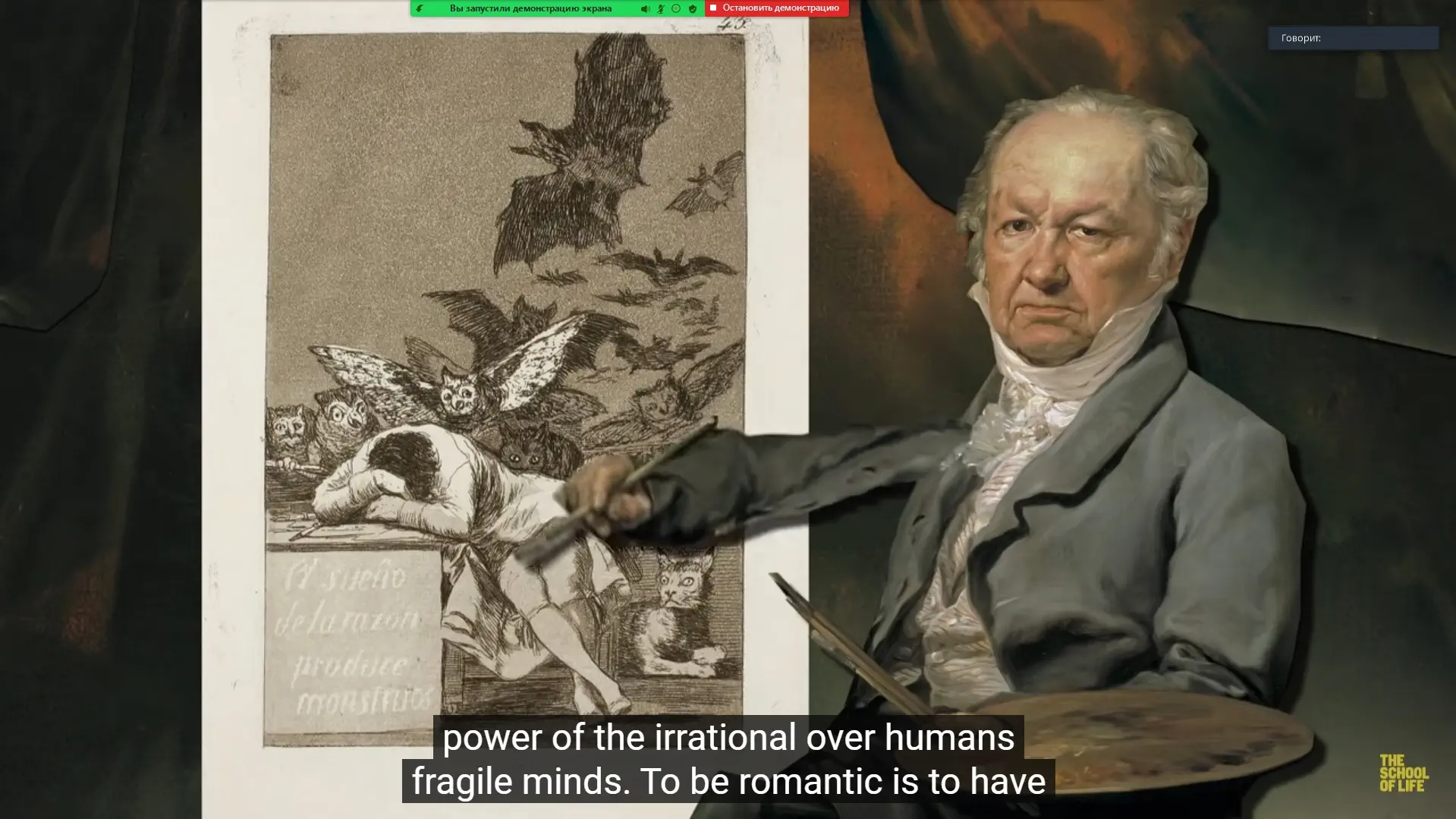Participants of the students’ scientific club "Philology" under the guidance of Candidate of Philology, Associate Professor of the Department of Germanic Philology and Translation of the National University "Yuri Kondratyuk Poltava Polytechnic" Anna Pavelieva held a regular meeting devoted to the phenomenon of "Lake School" in English poetry of the XVIII-XIX centuries. Philology students discussed the creative heritage of Lake Poets and analyzed the prerequisites for the emergence of a similar phenomenon in contemporary English poetry.
The "Lake School" of English romantic poets is a direction in English poetry at the turn of the XVIII-XIX centuries. To this group of Lake Poets belonged talented masters of the word William Wordsworth, Robert Southey and Samuel Coleridge, who lived in the Lake District. The above-mentioned poets managed to update English lyrics, denying the rationalistic dogmatism of the Classical and Enlightenment eras. Their poetry is characterized by dreaminess, experience of nature, love for the common man, idealization of the medieval past.
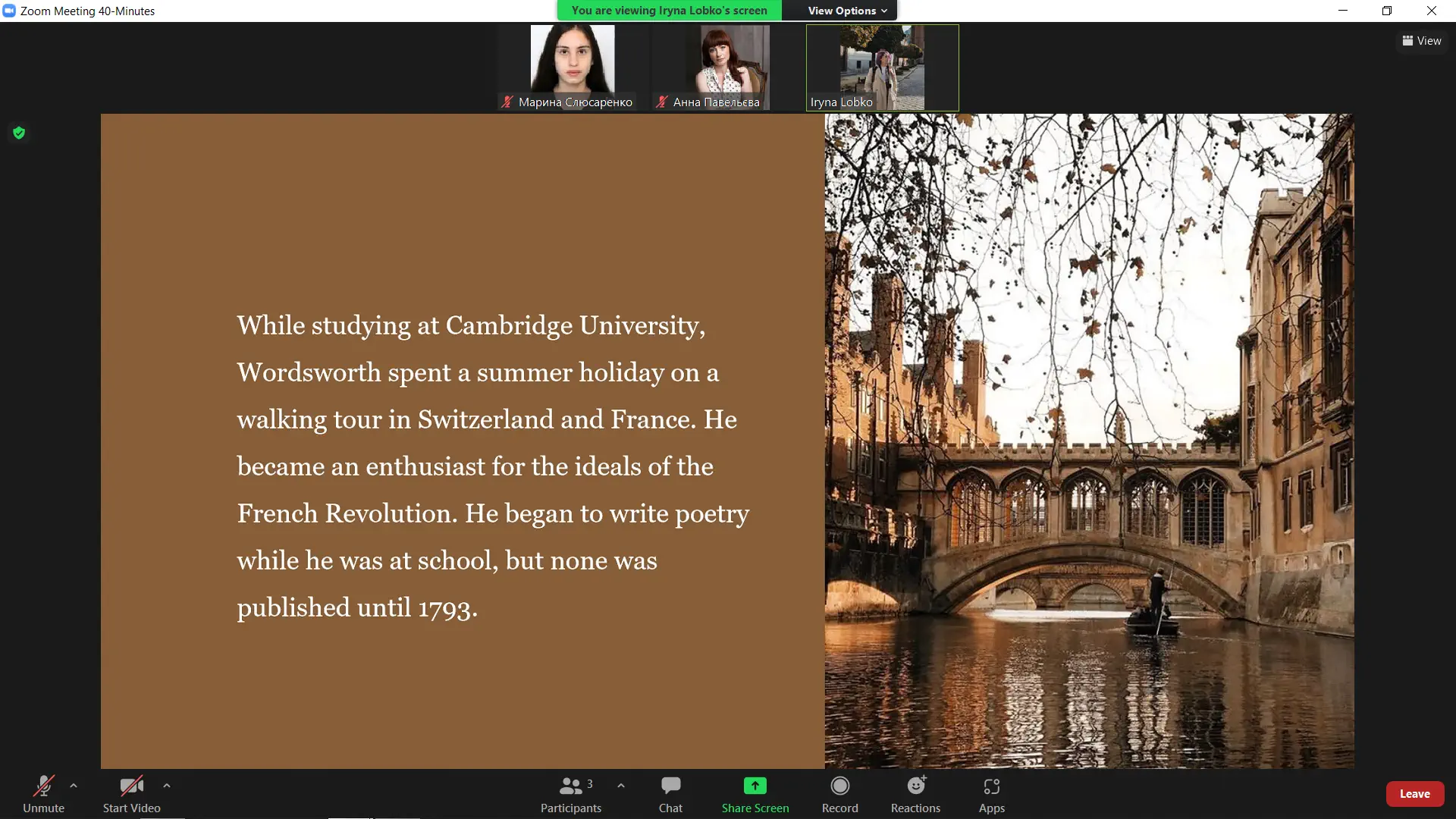
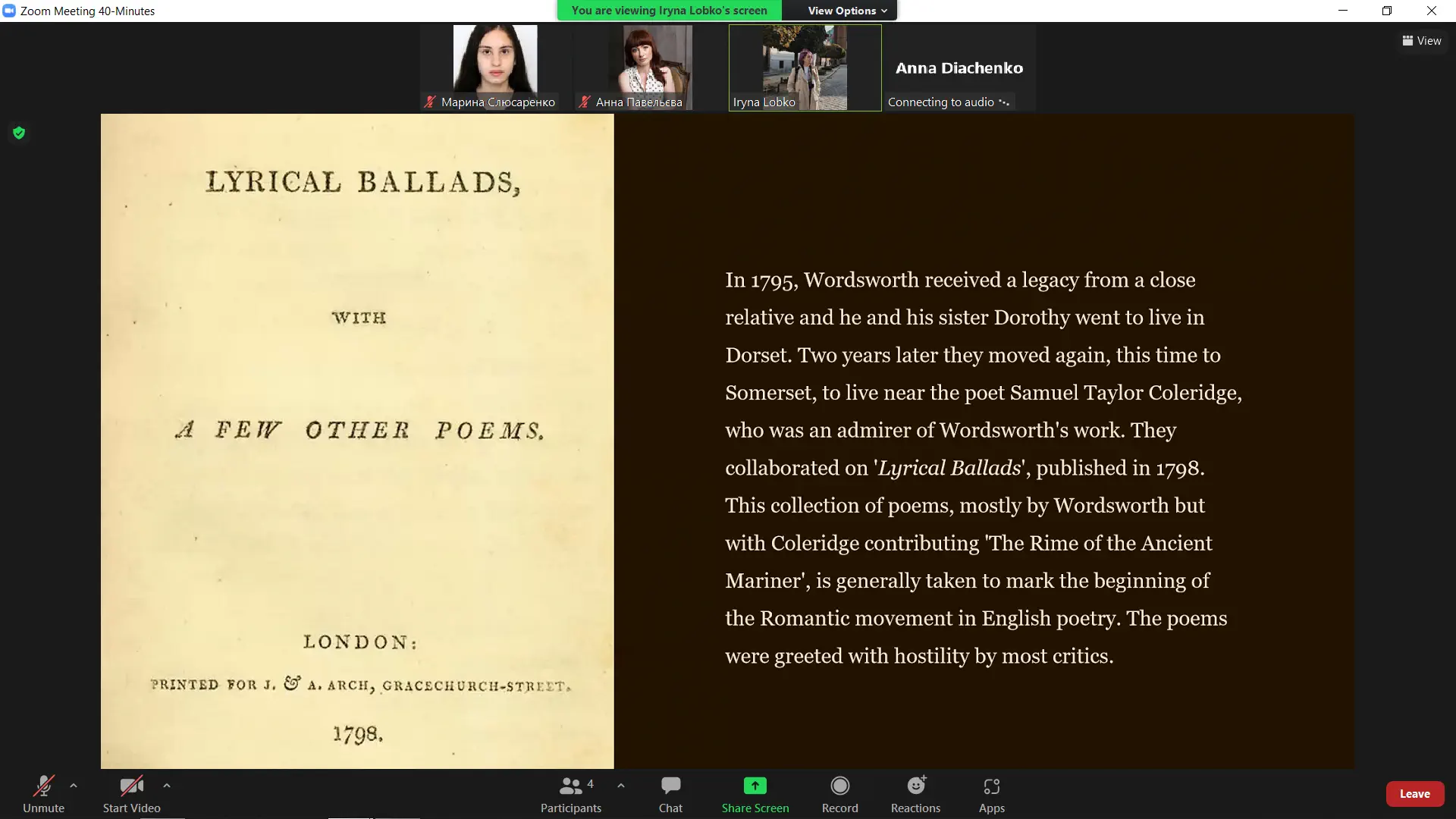
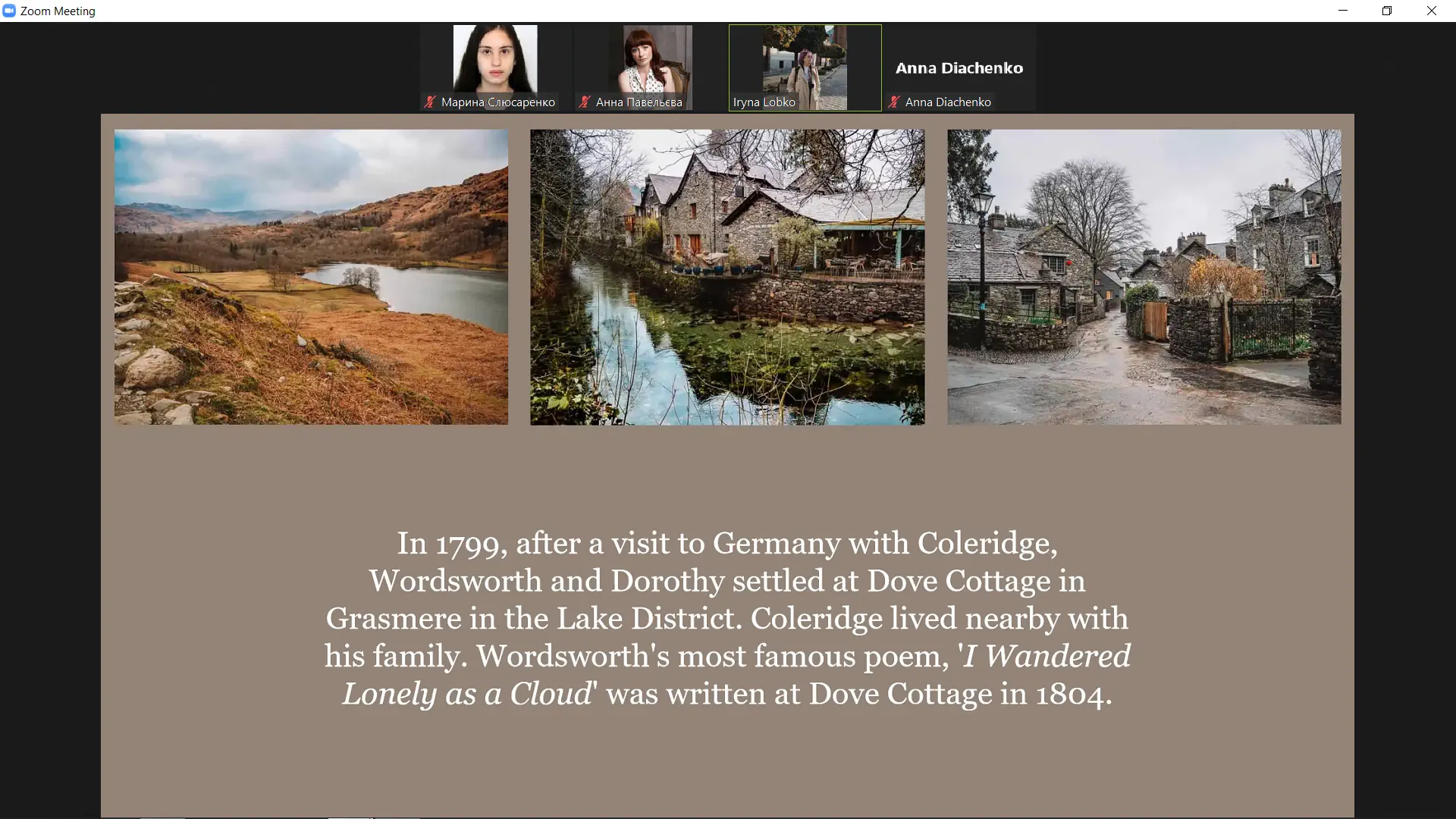
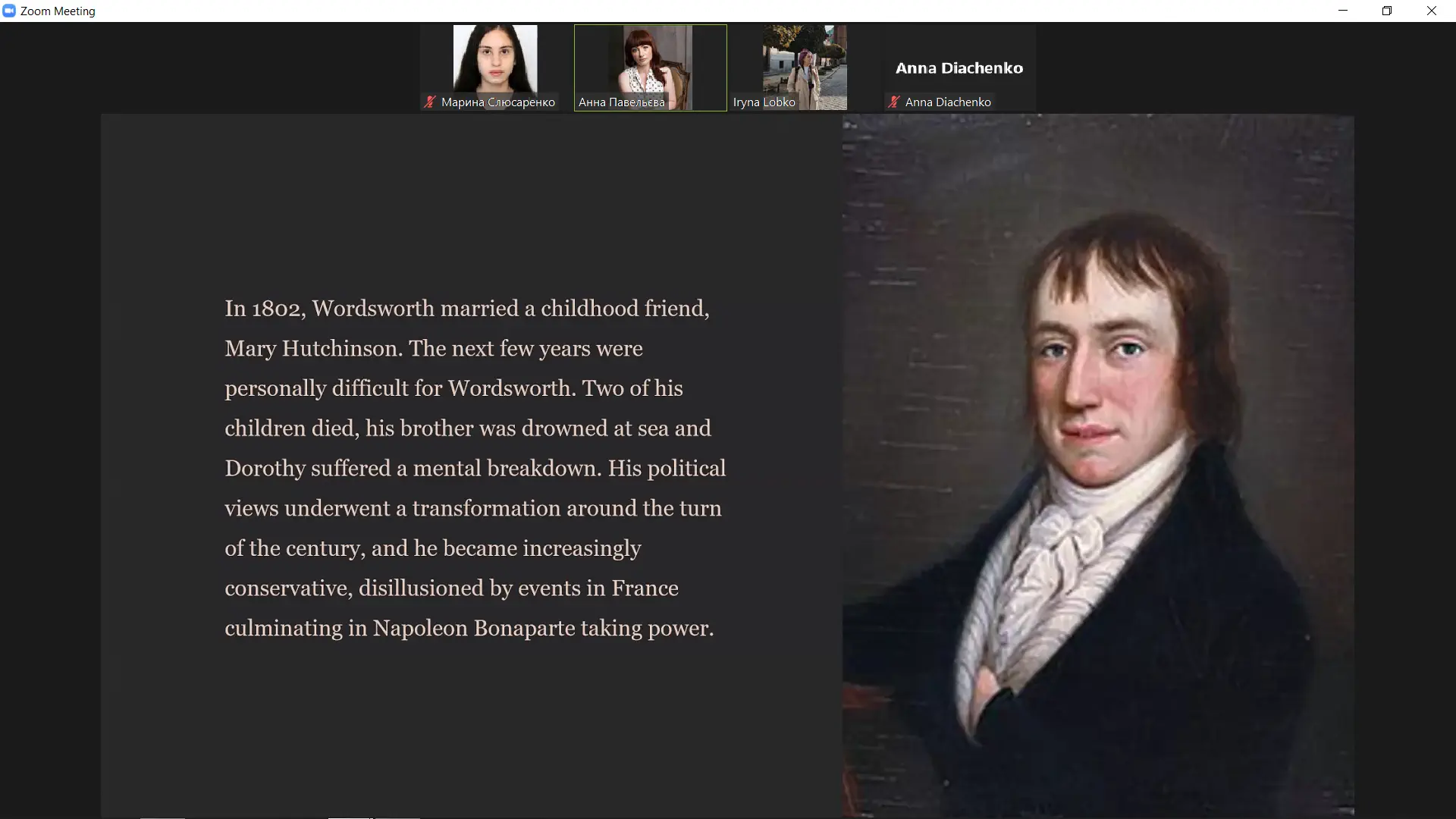
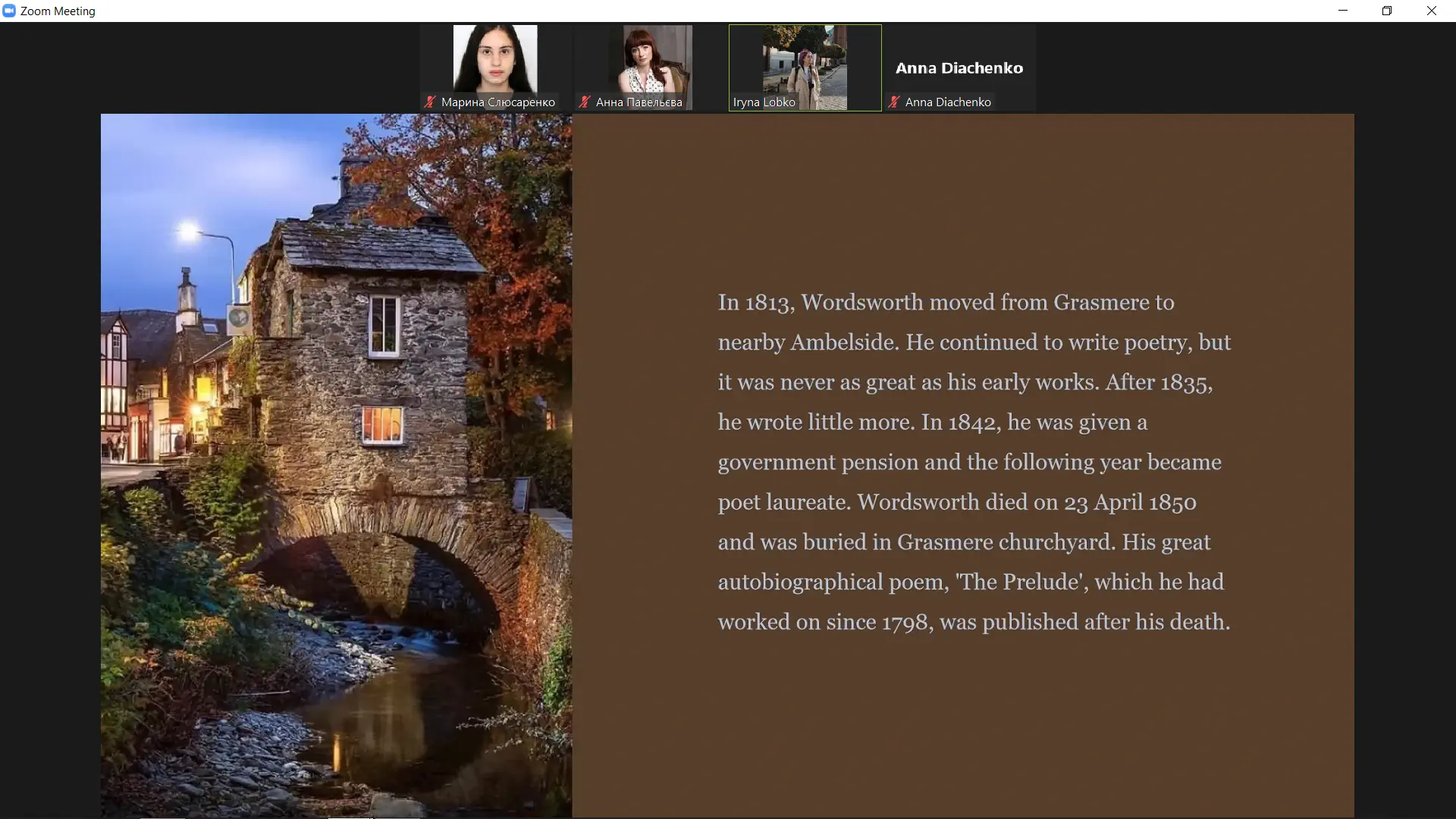
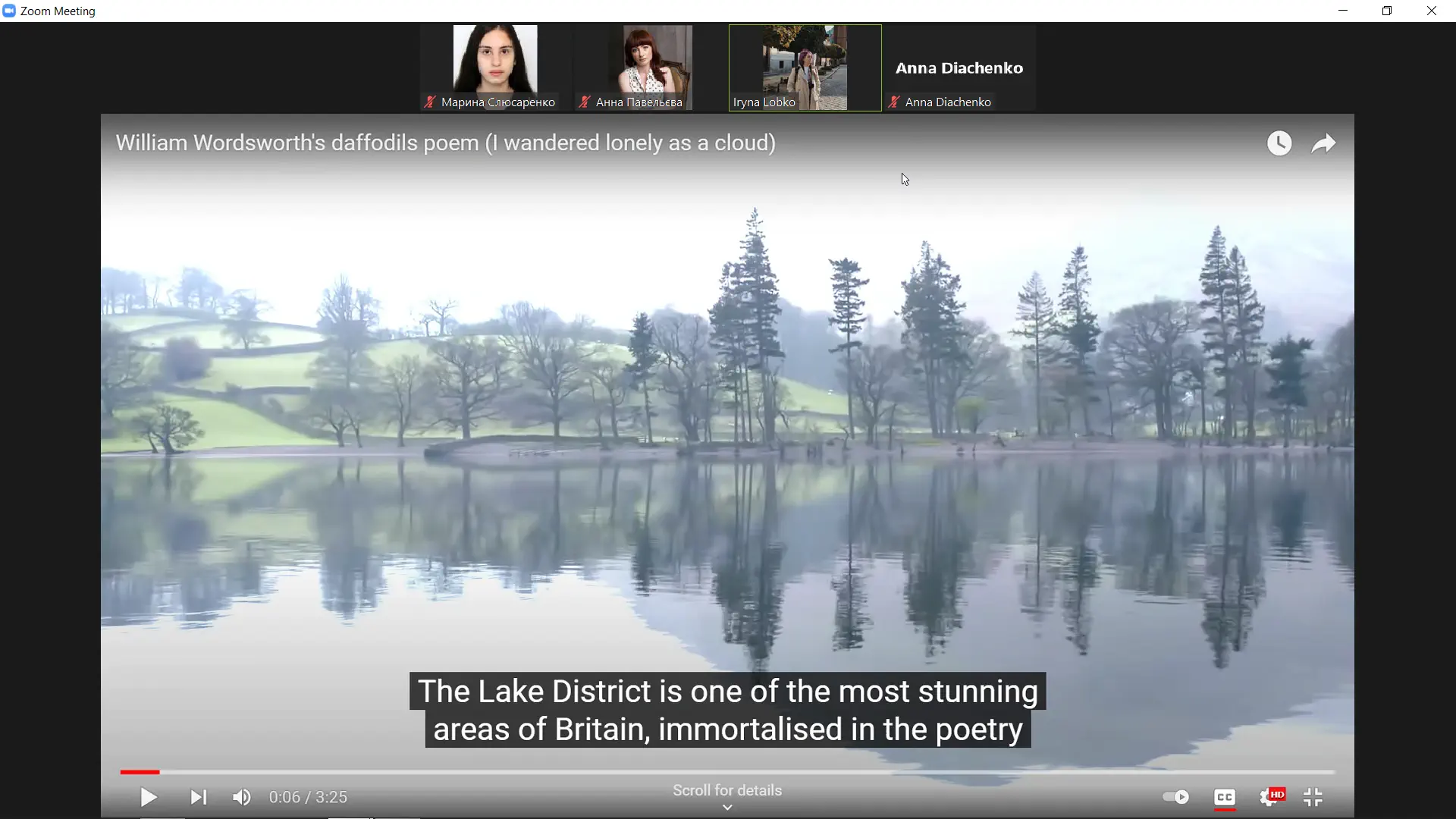
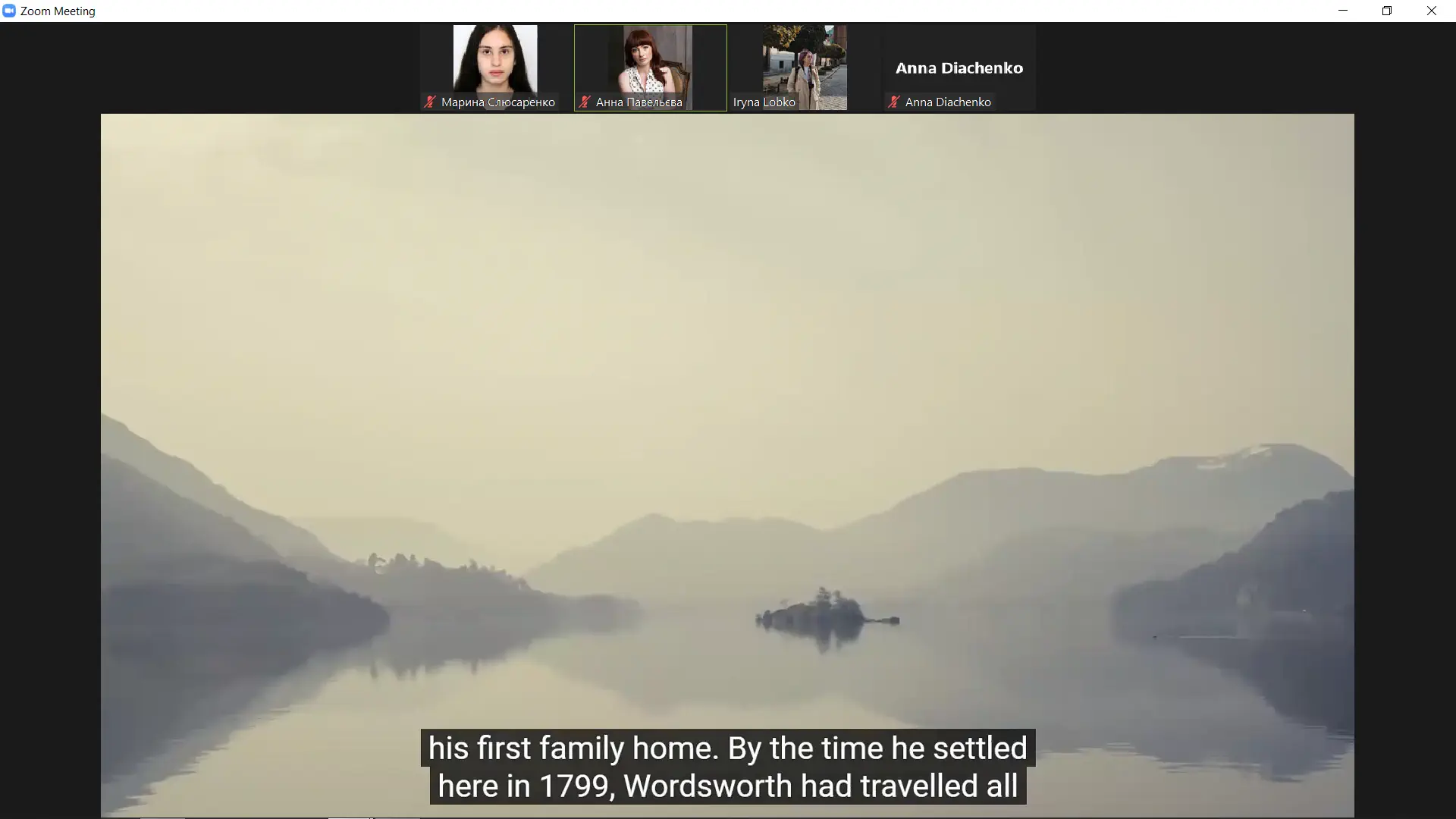
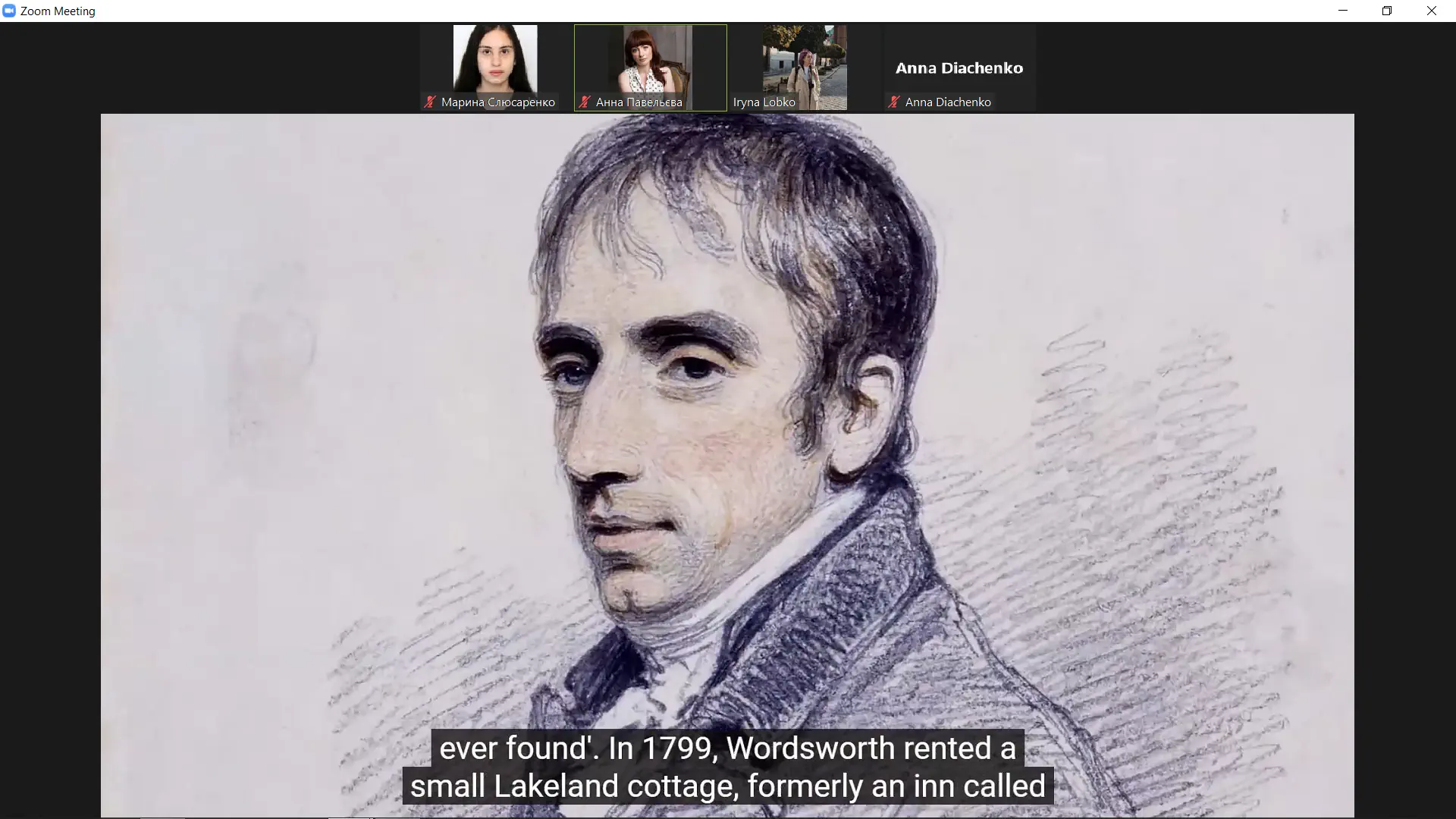




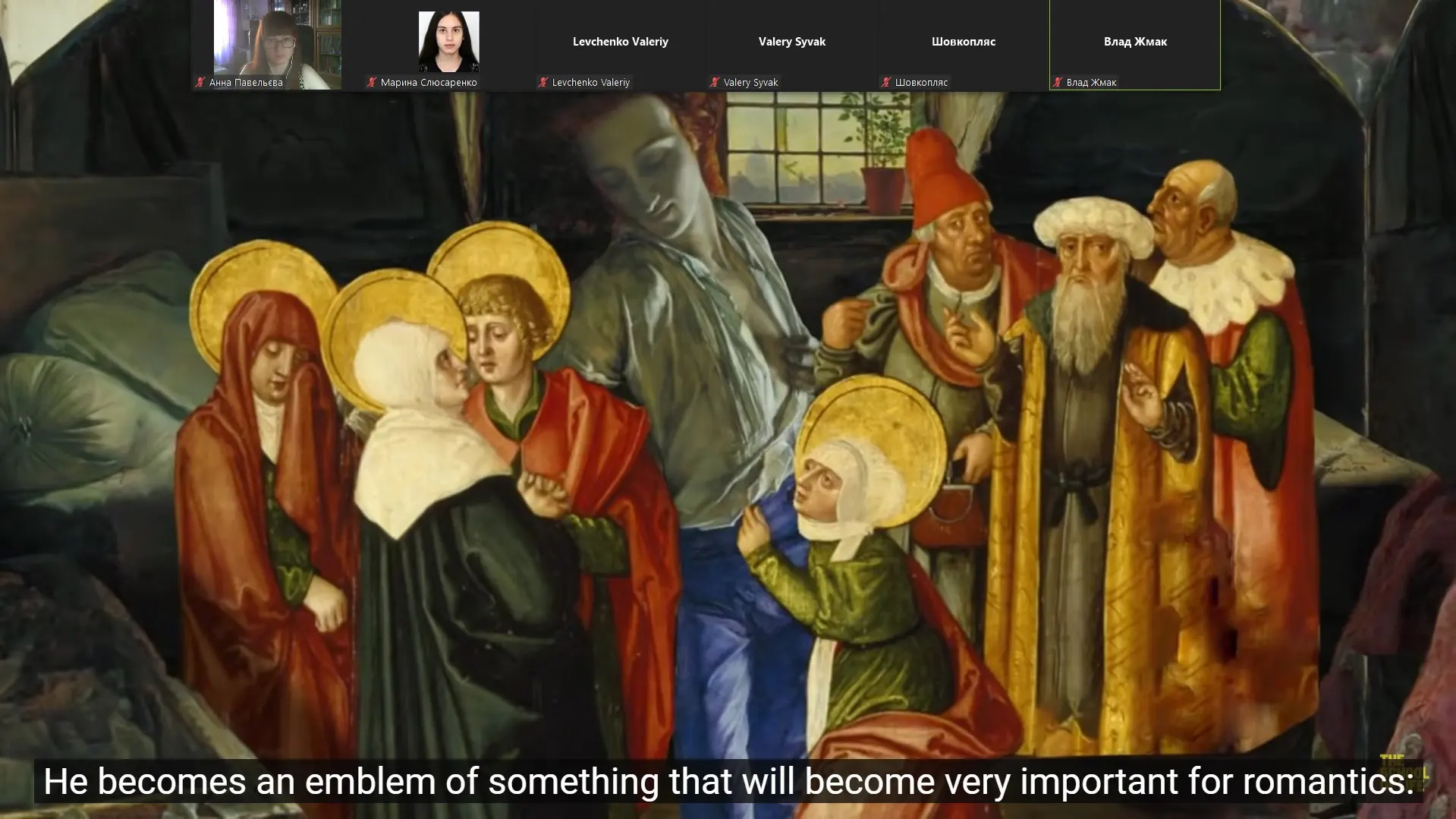
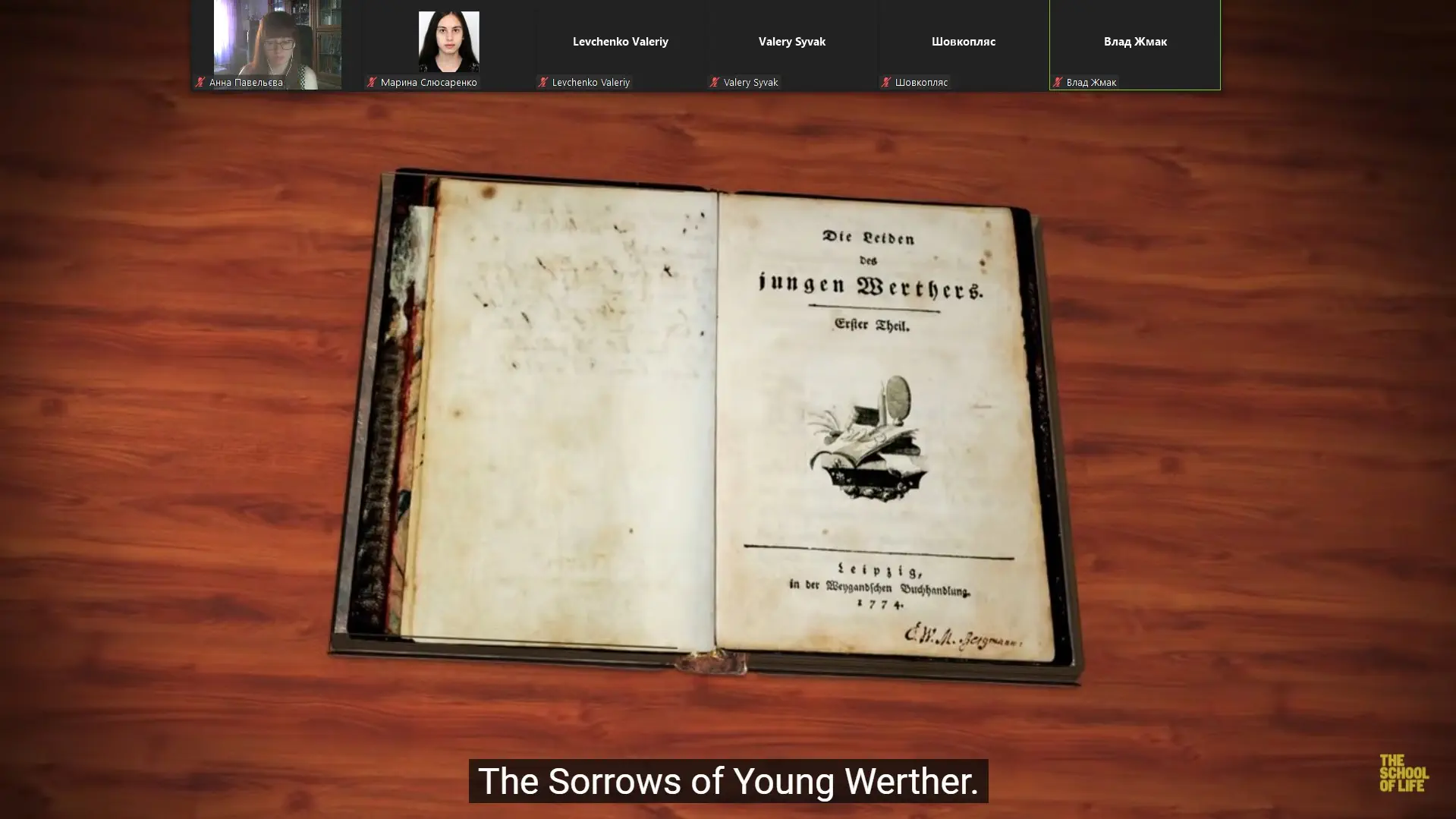
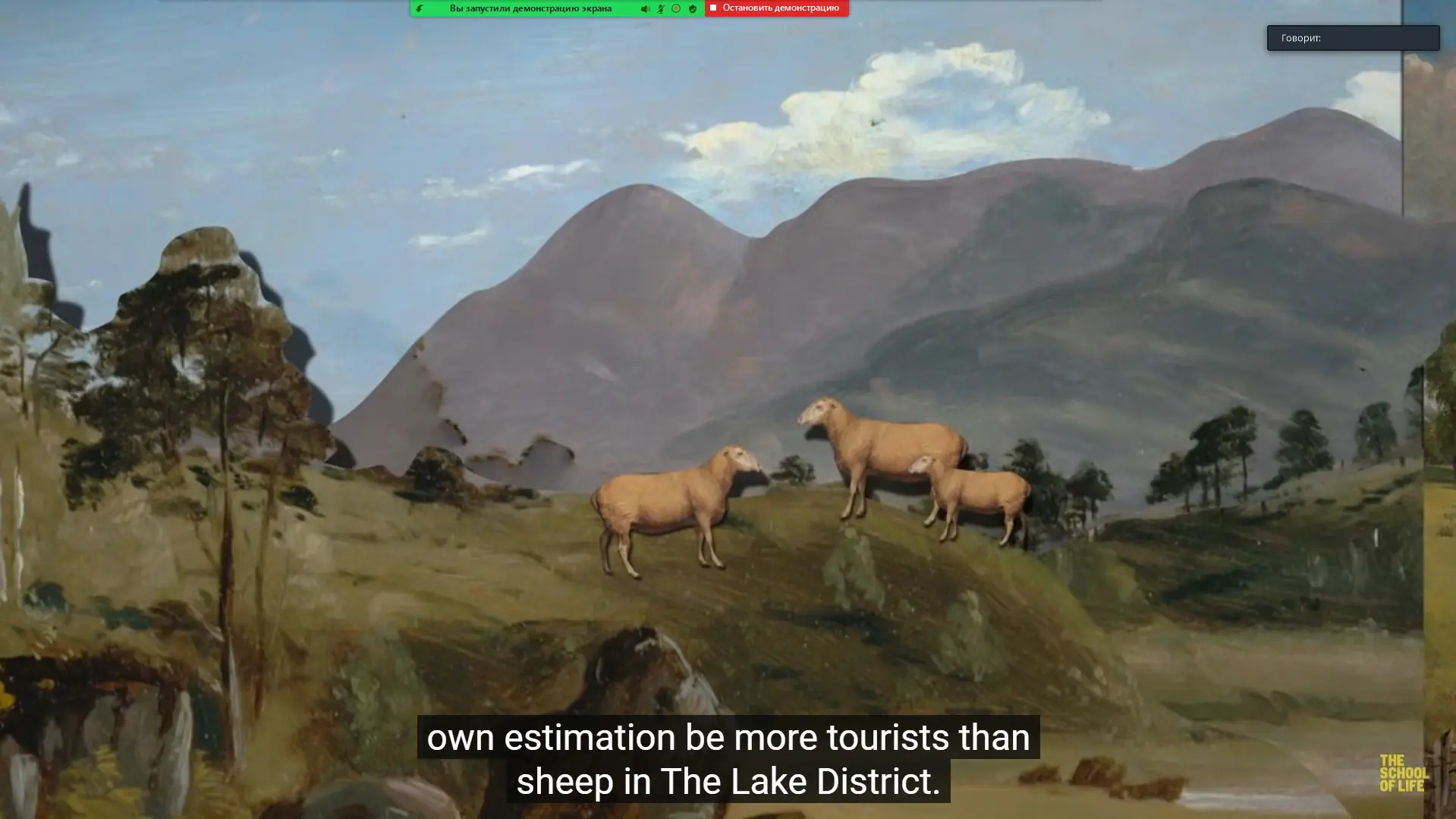
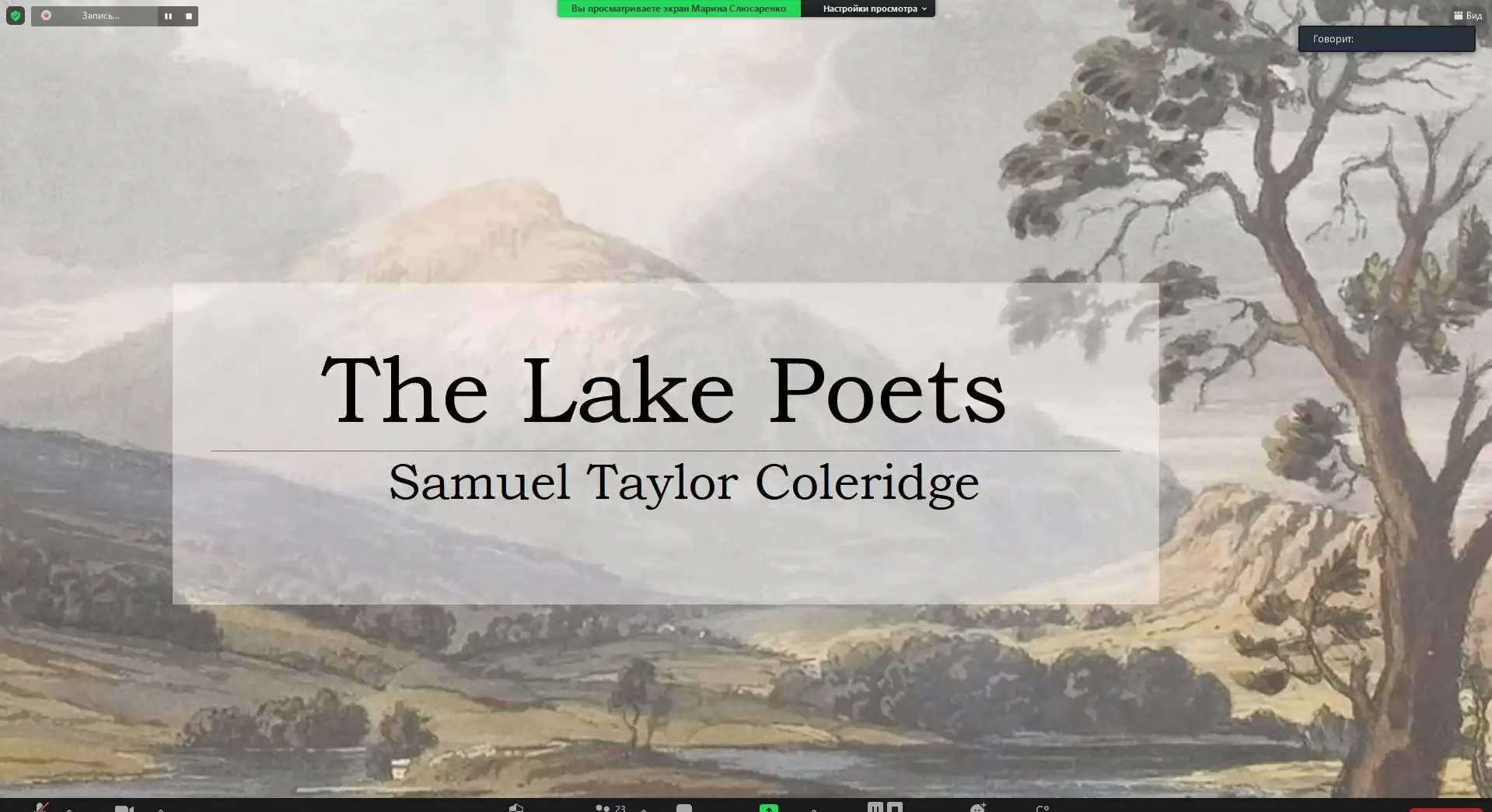
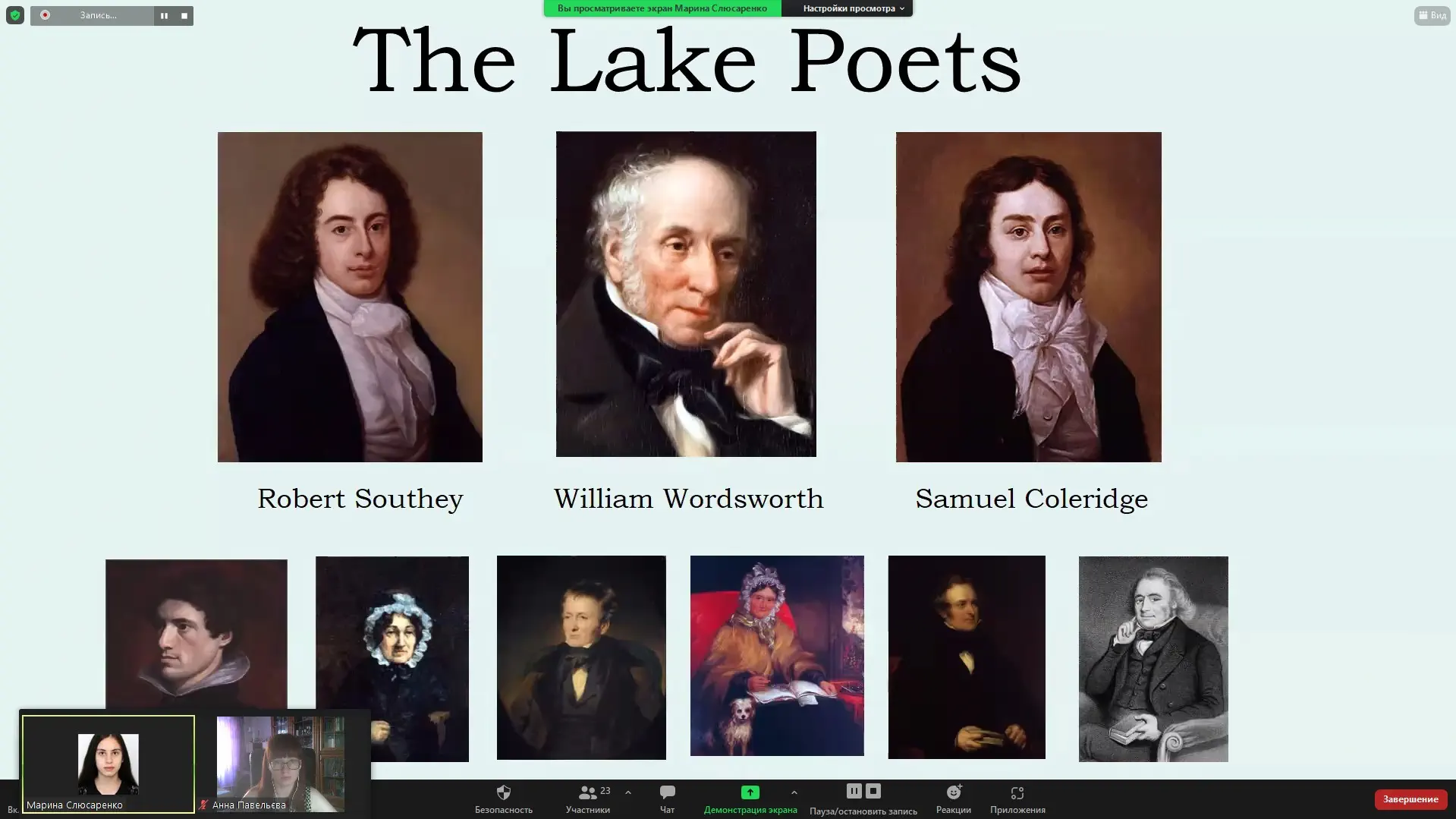
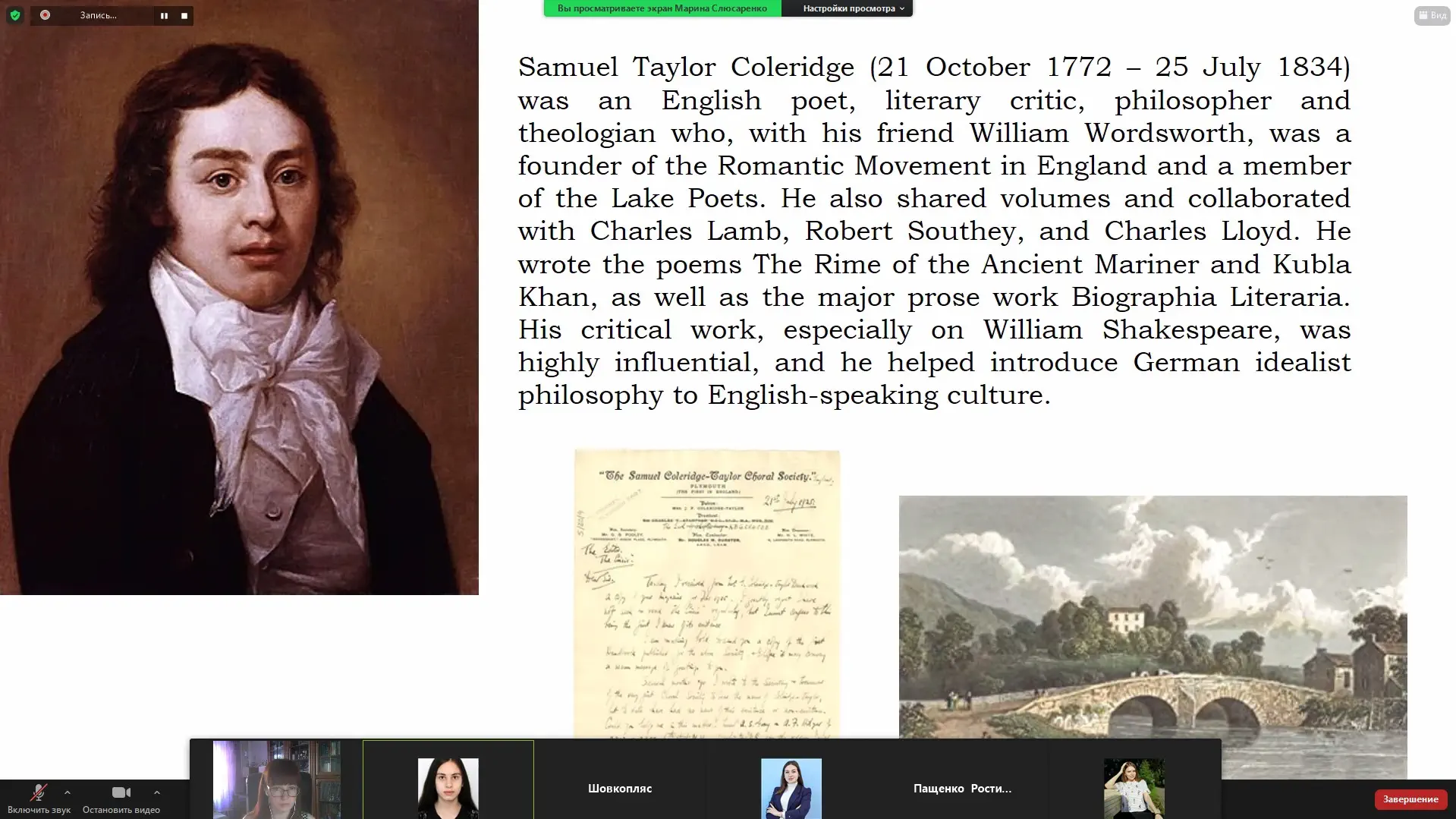
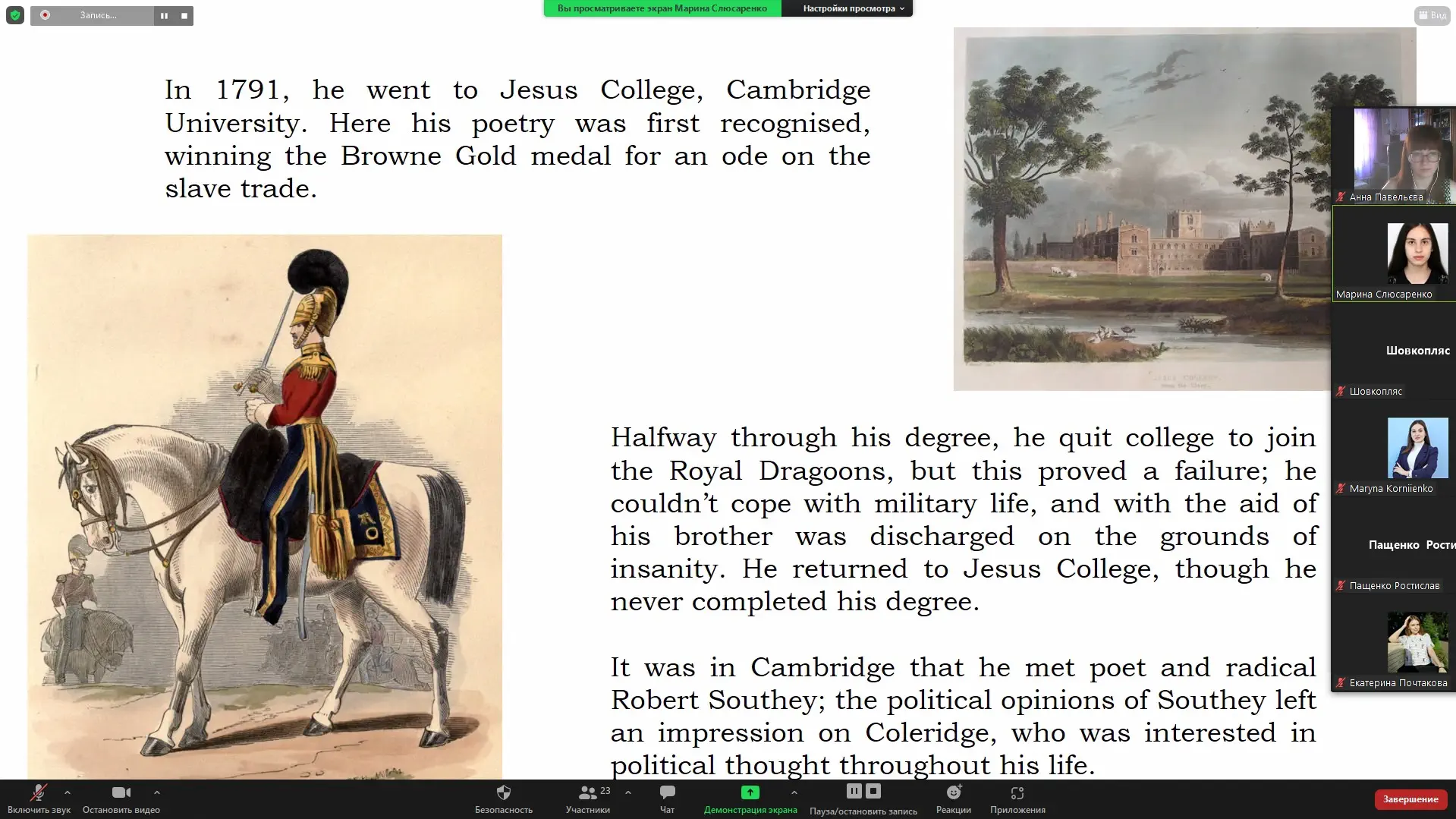
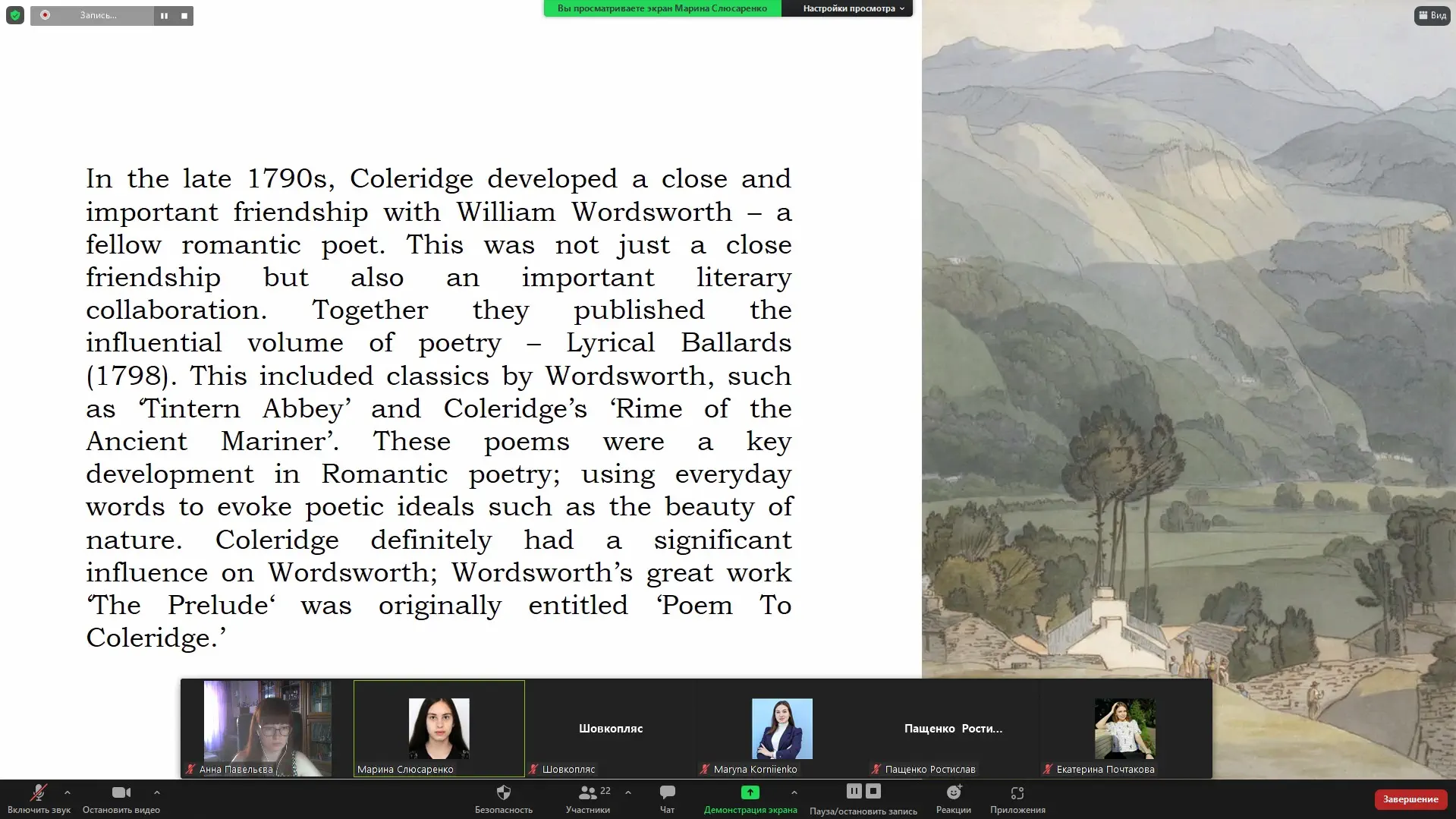
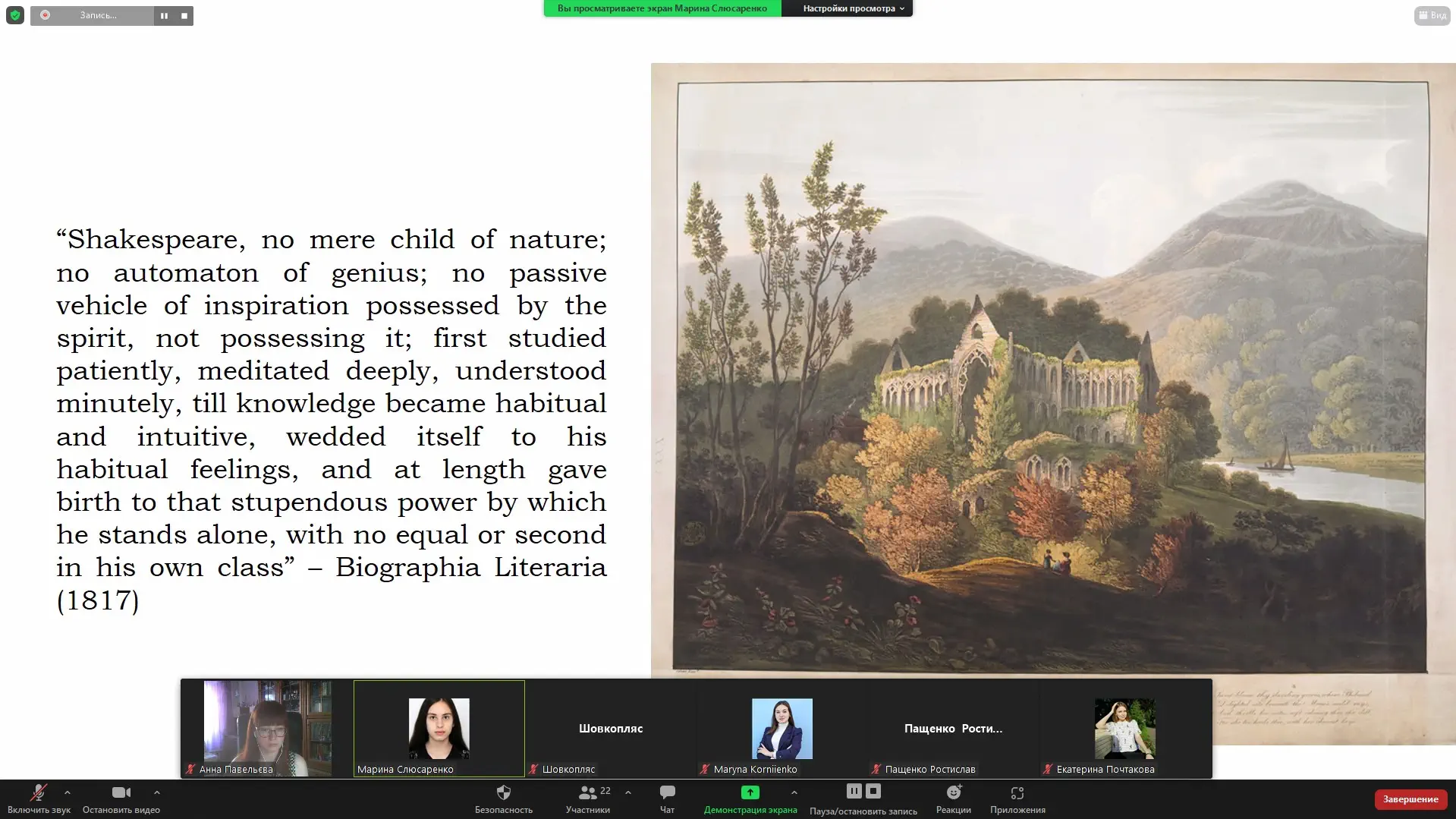
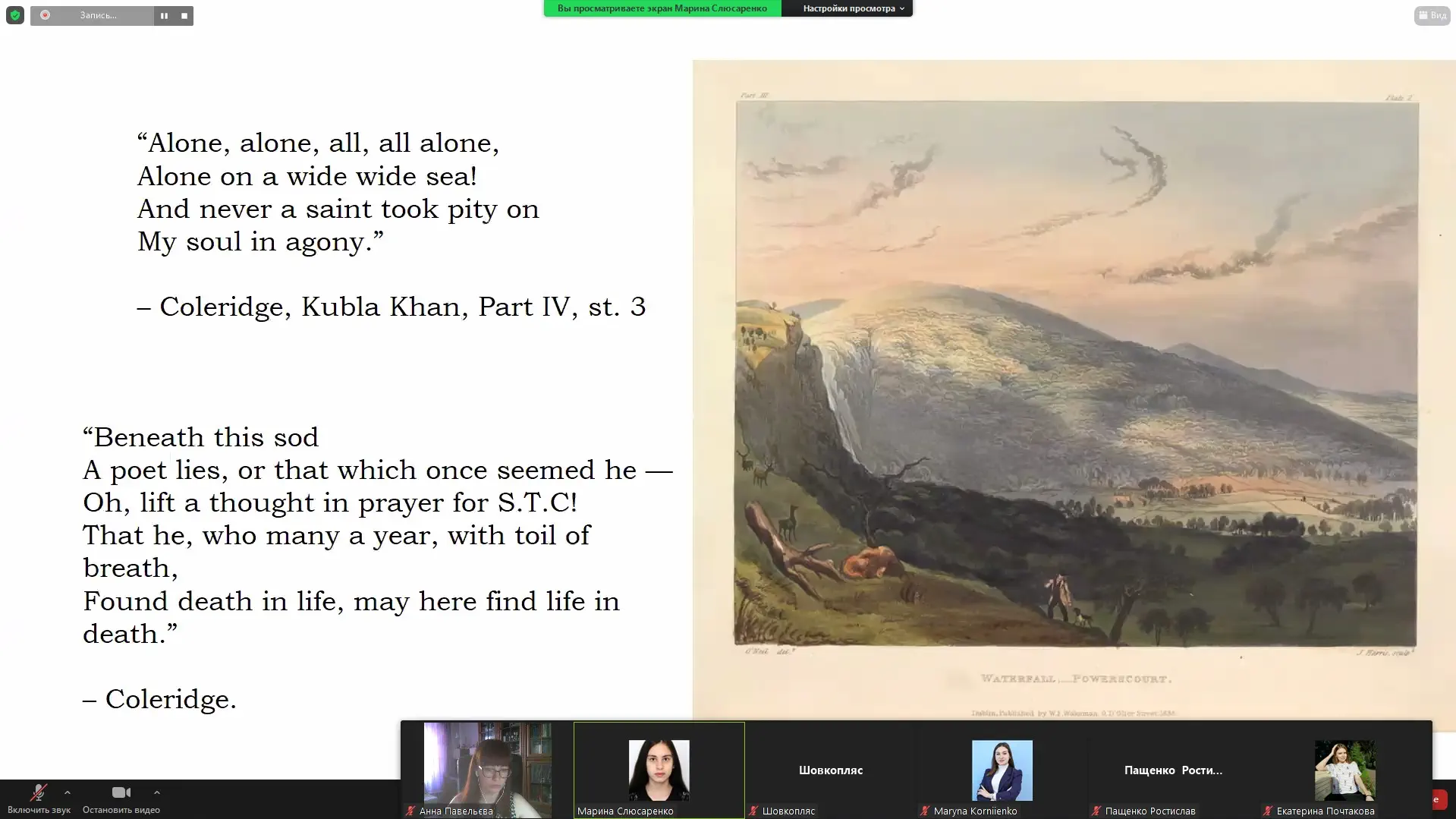
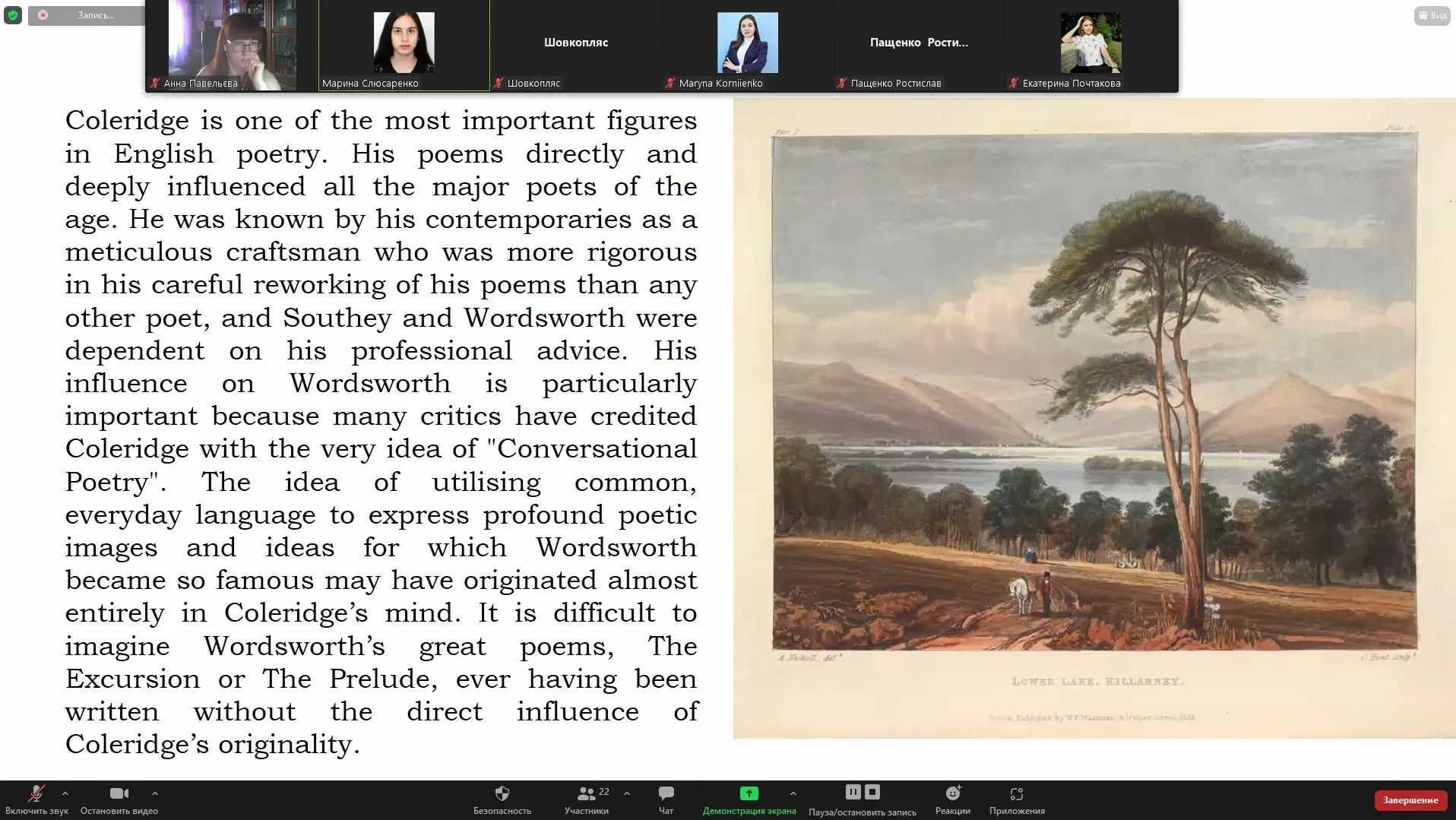

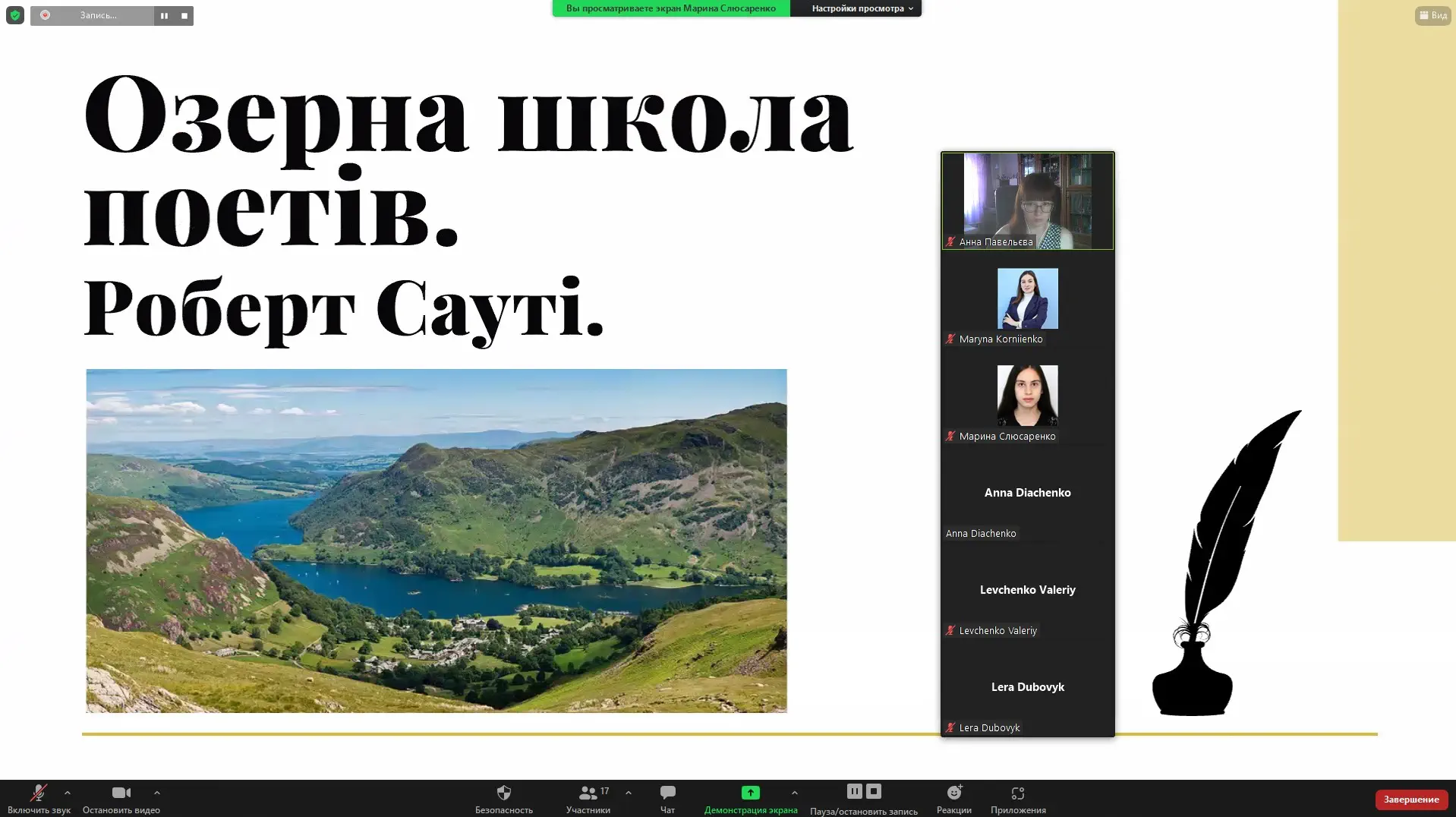

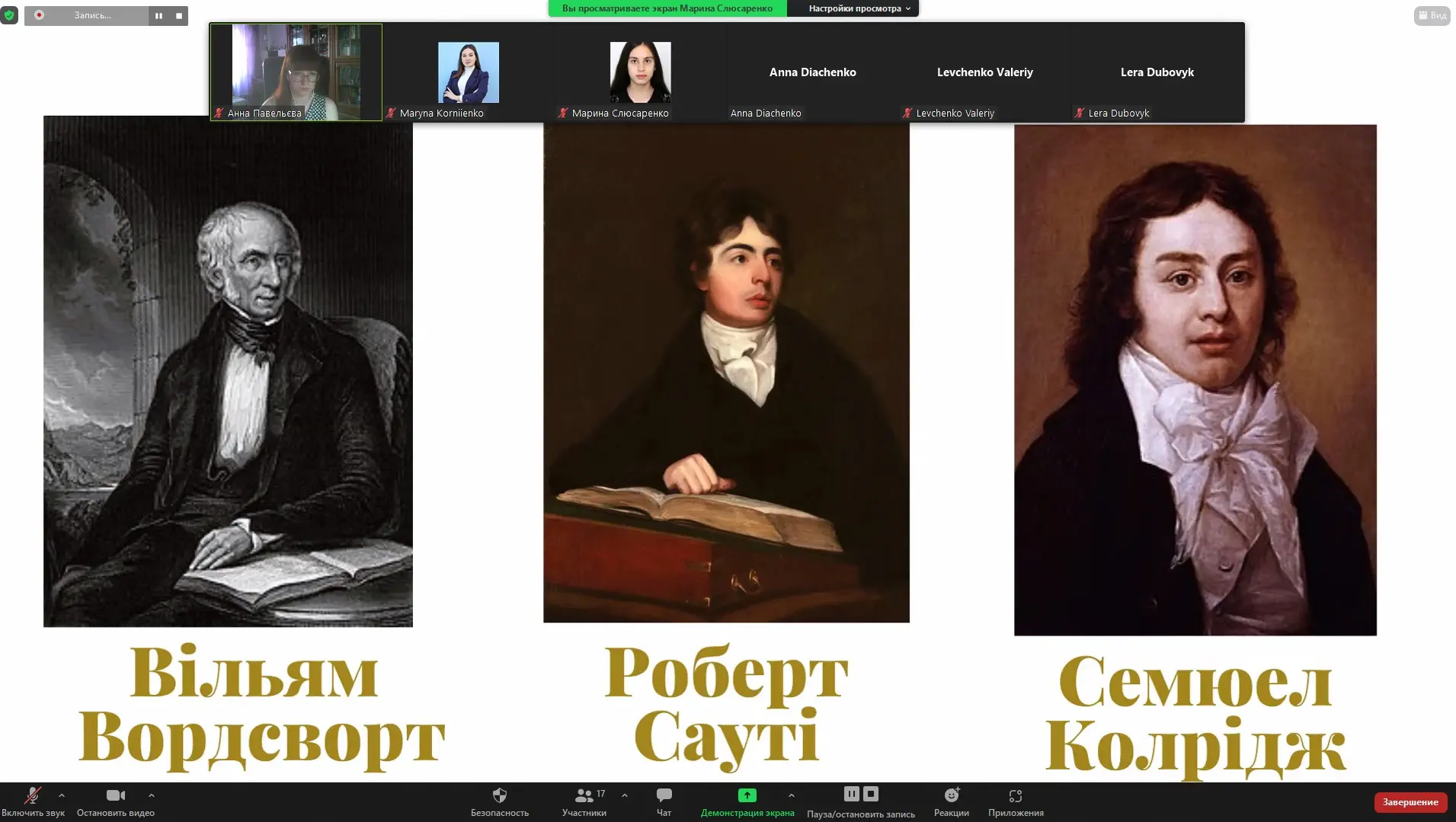
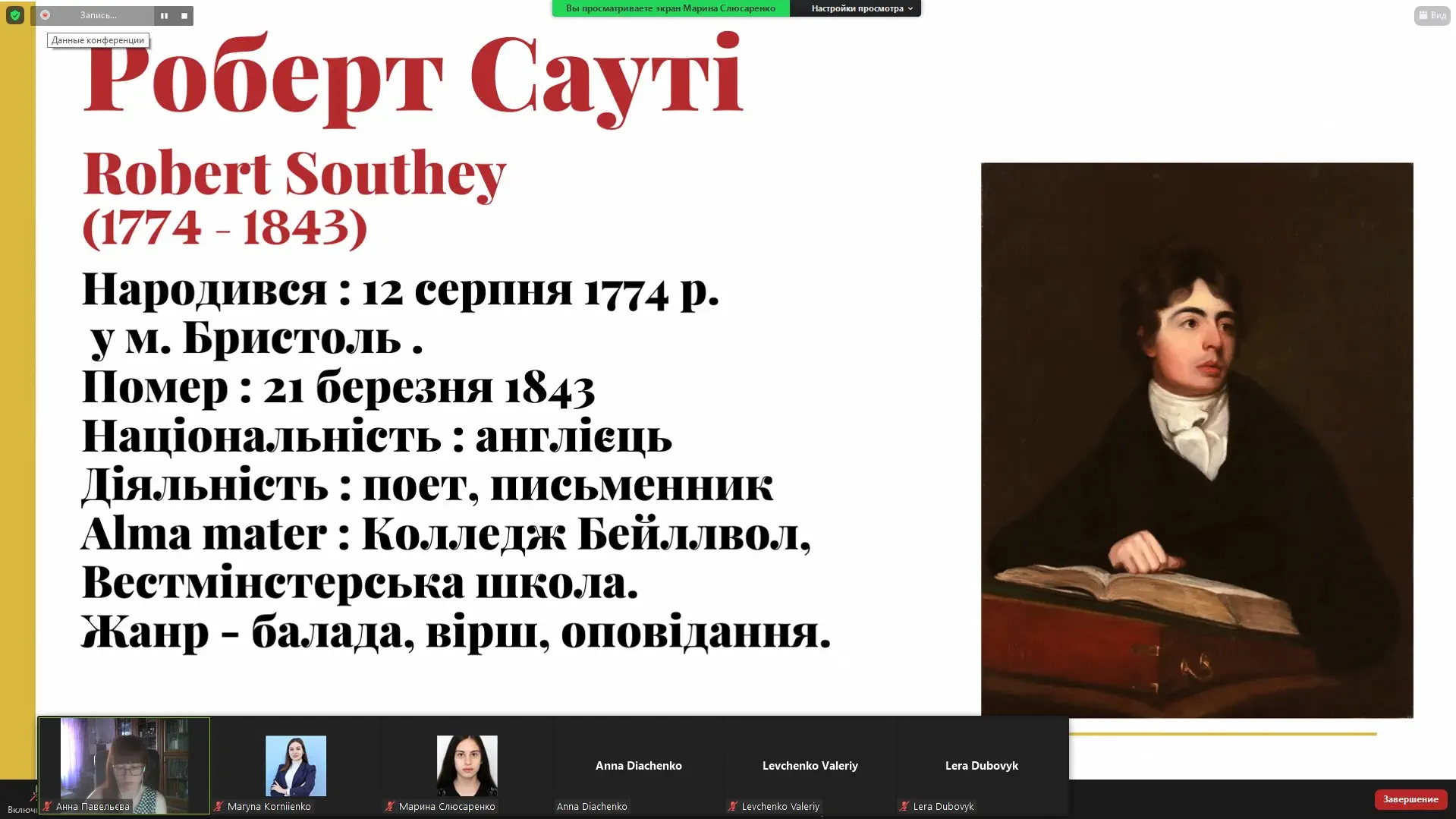
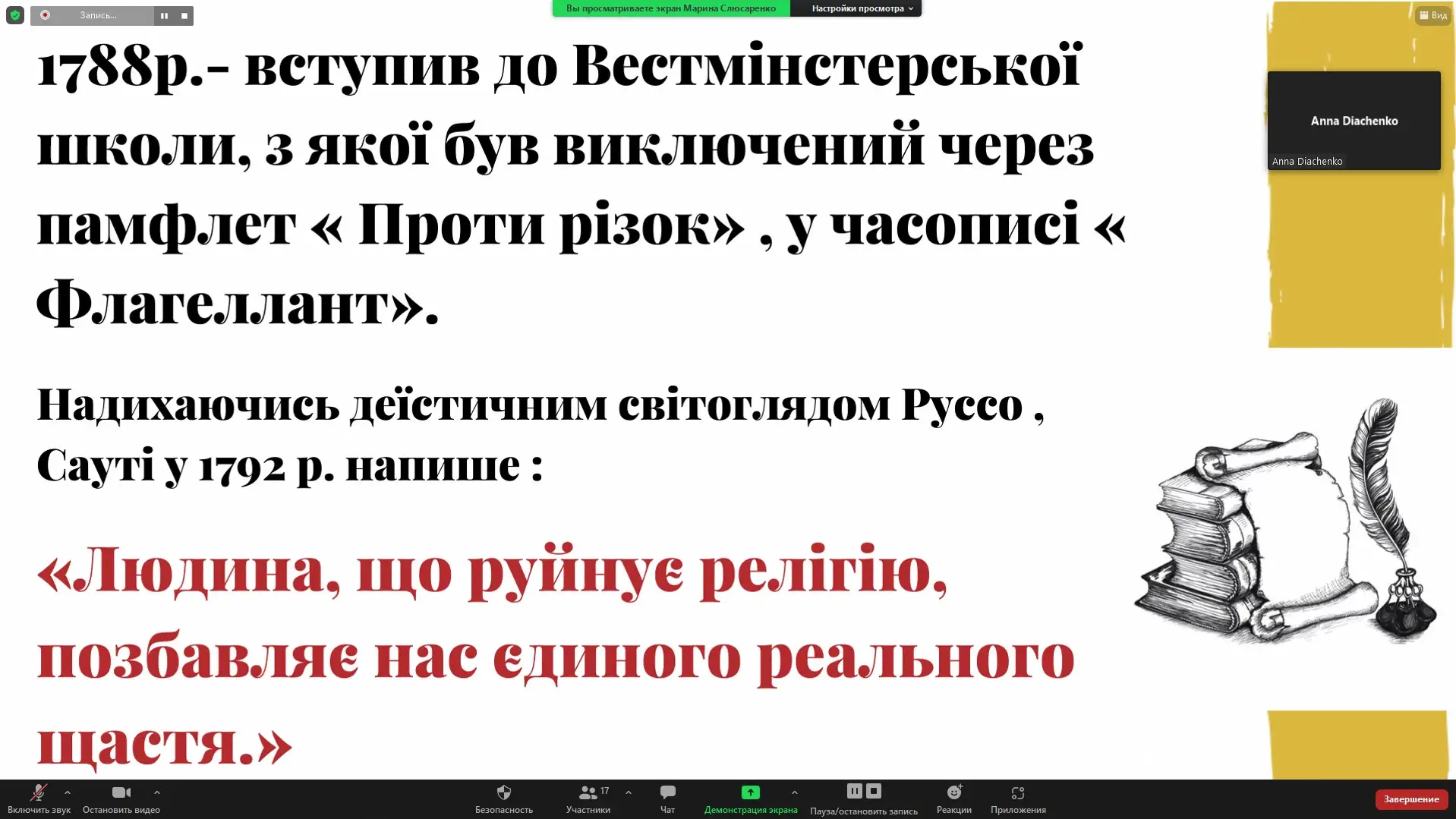
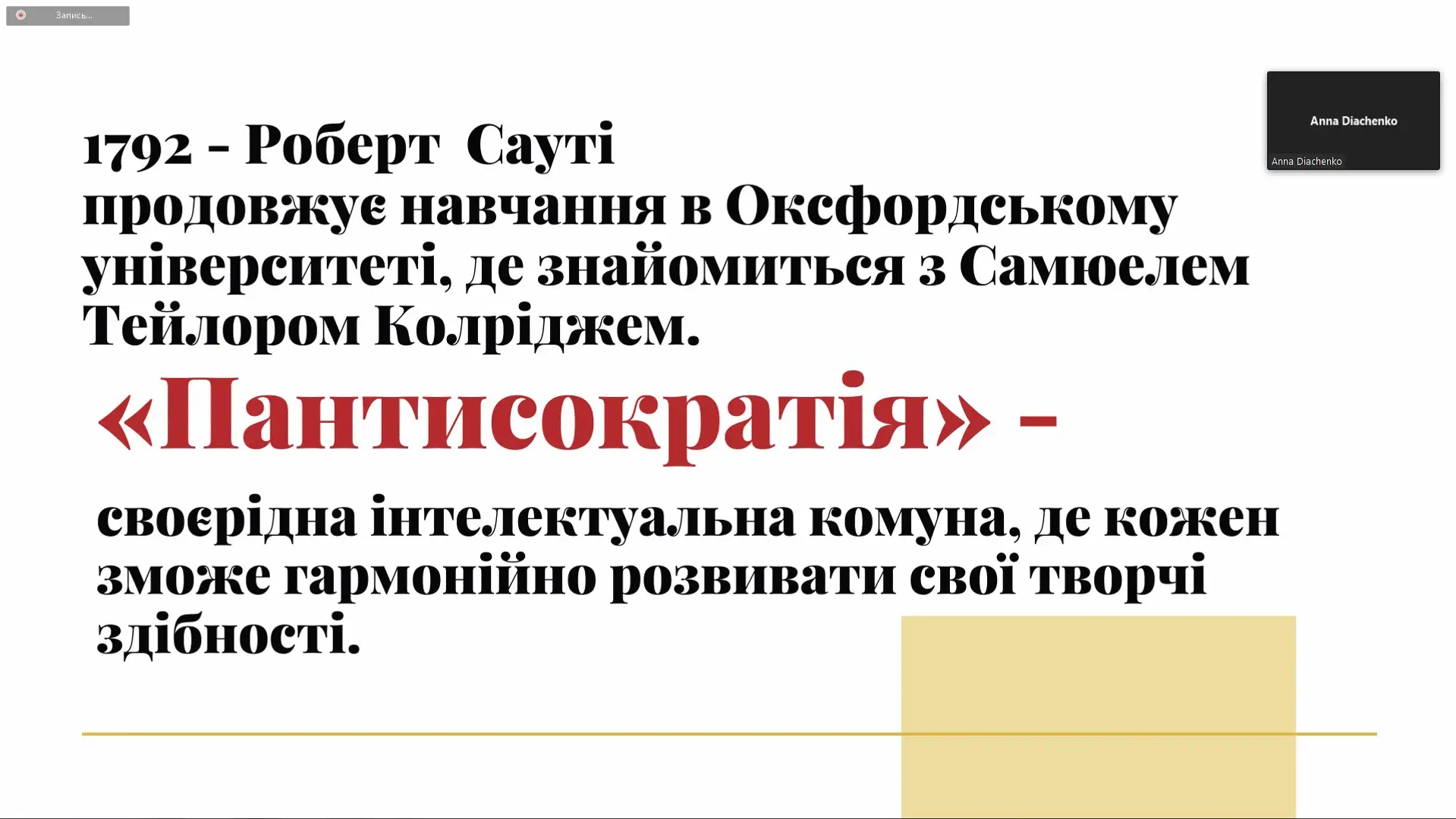
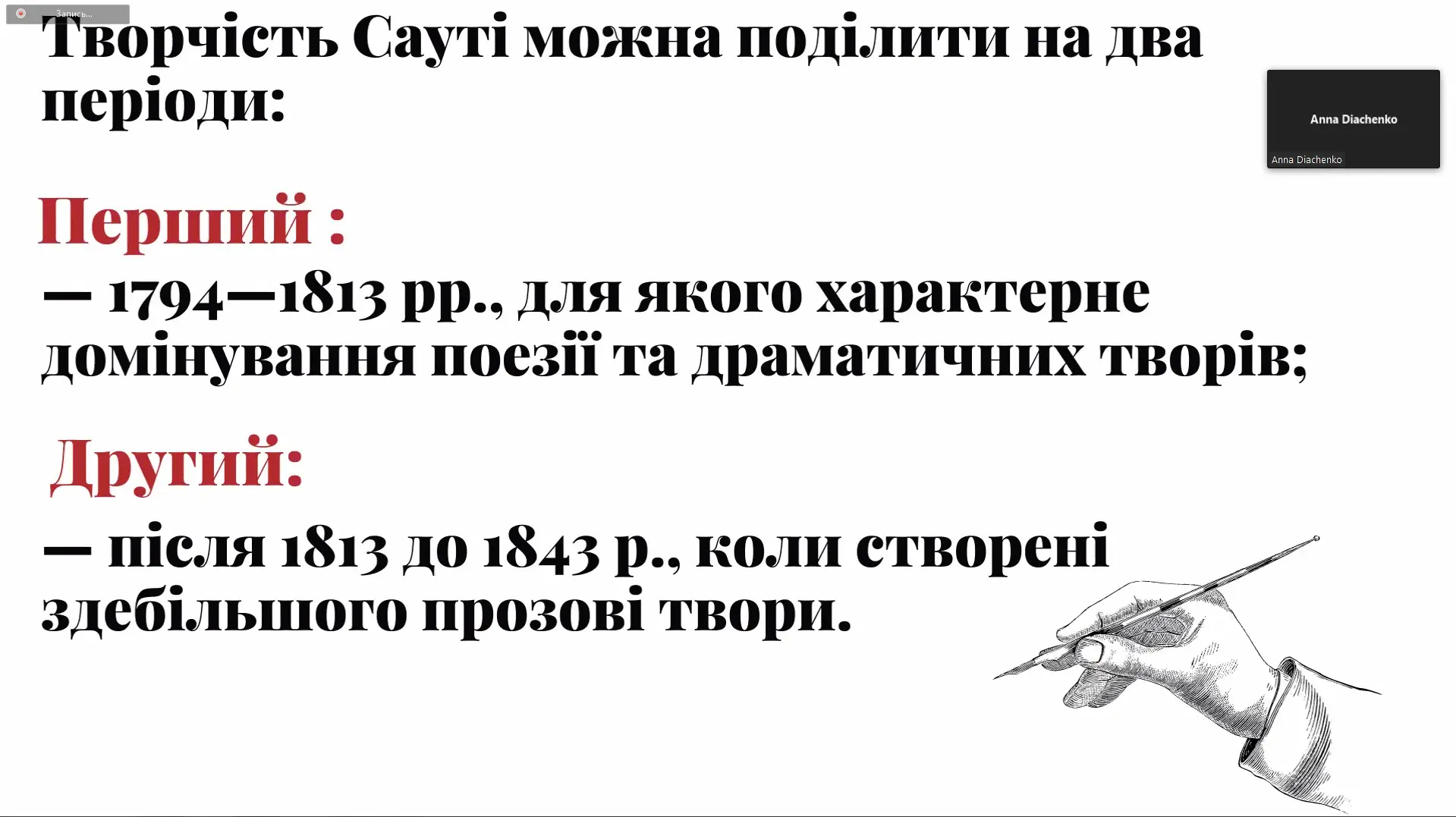
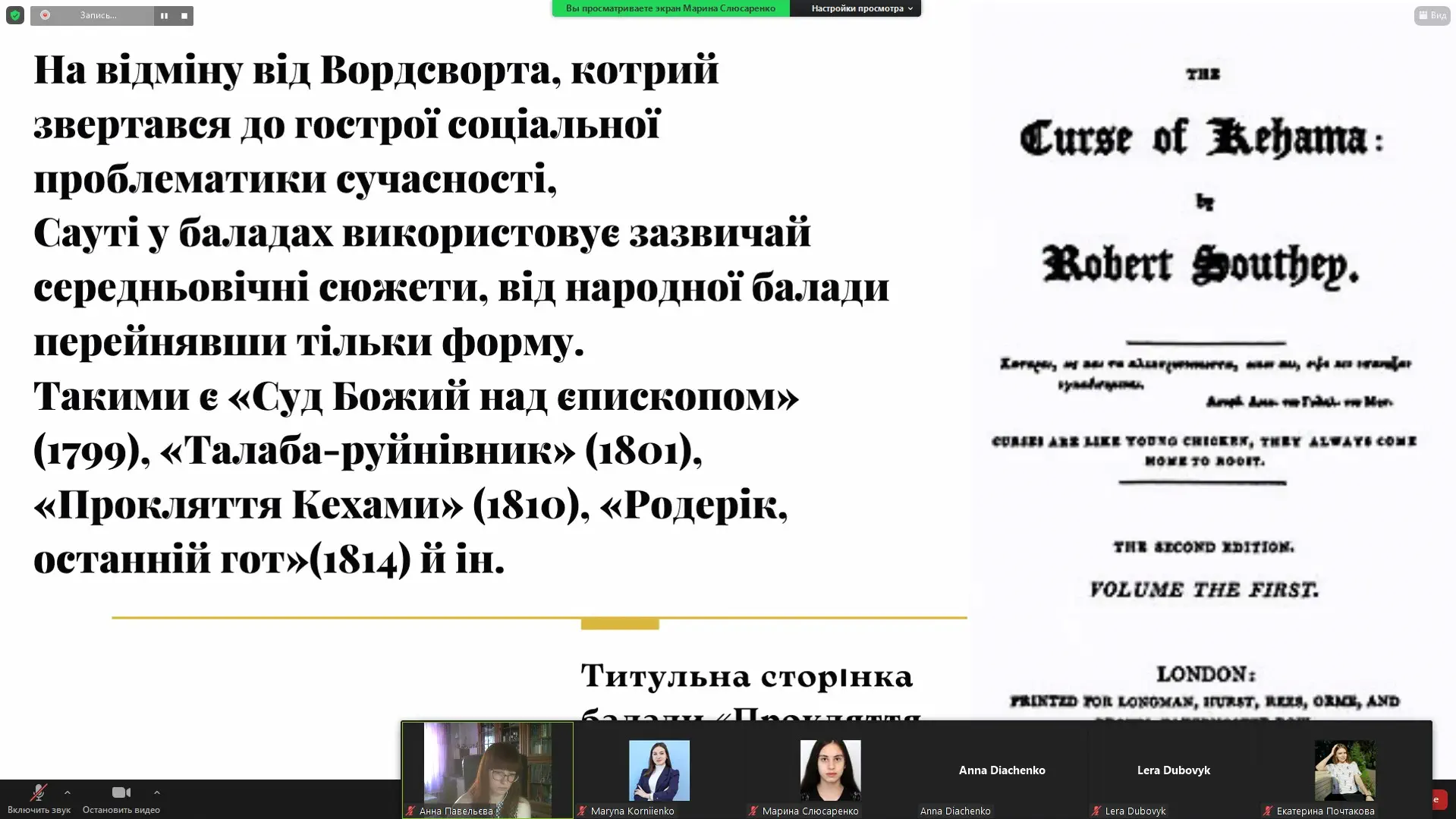
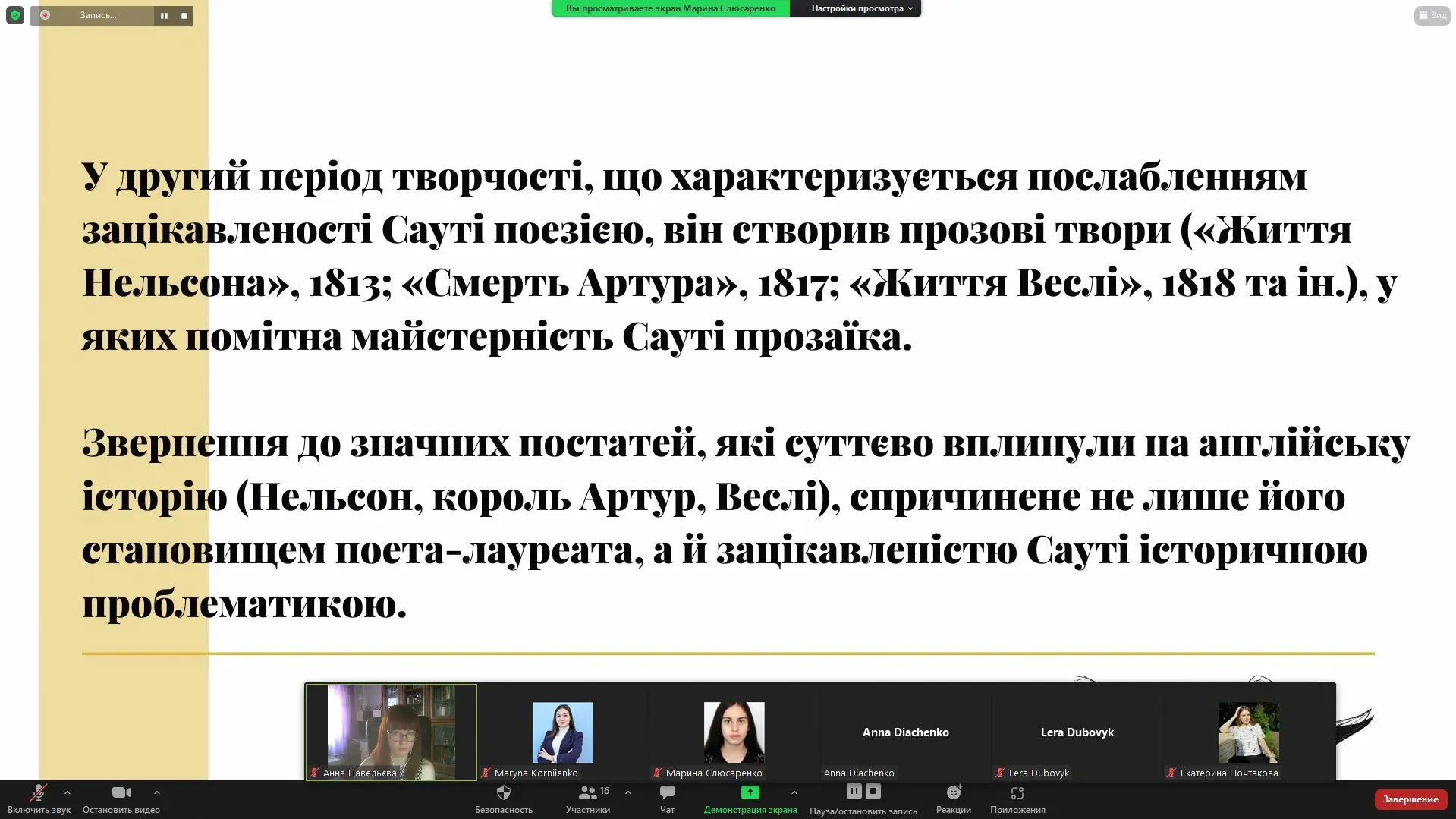
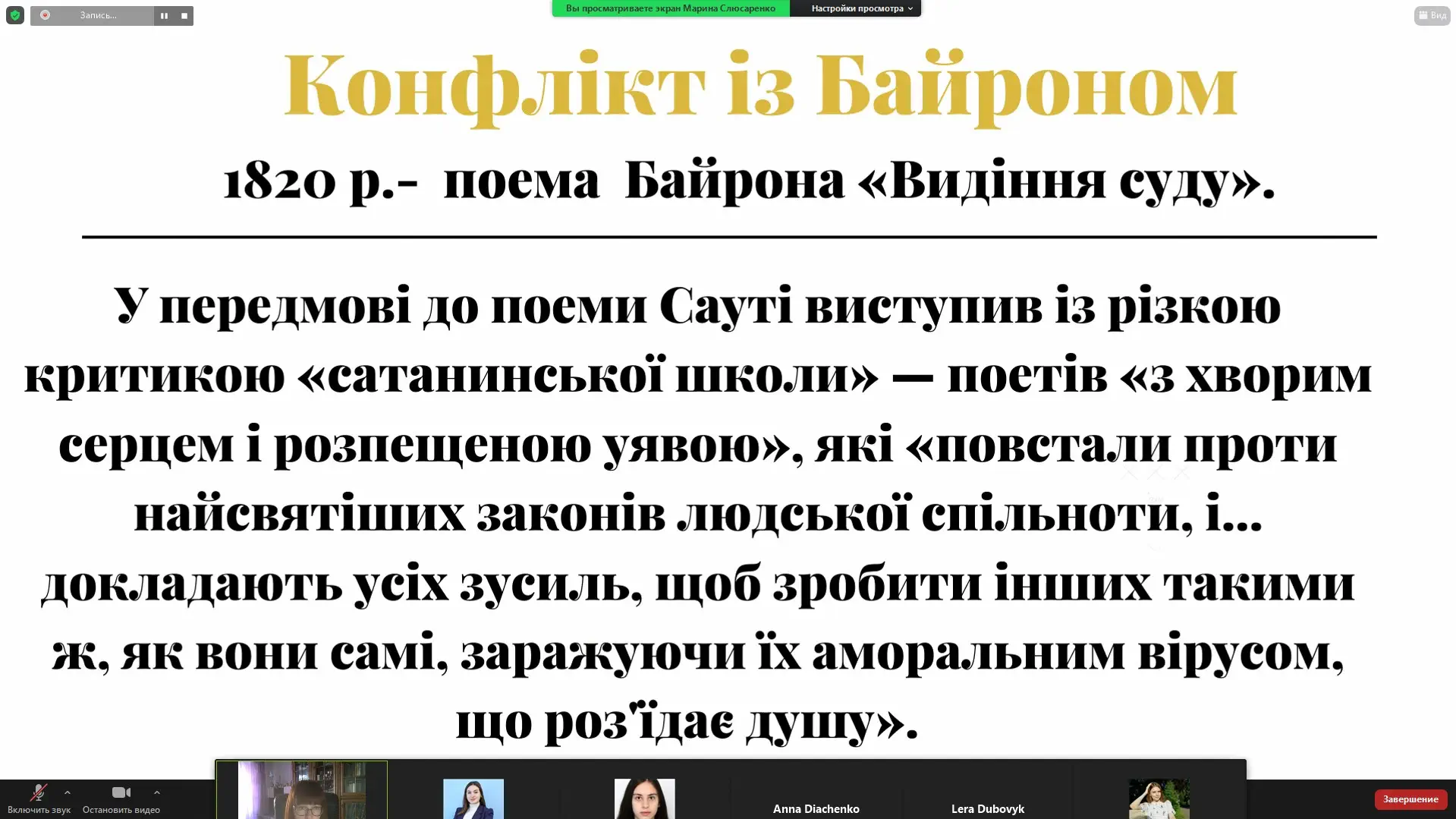
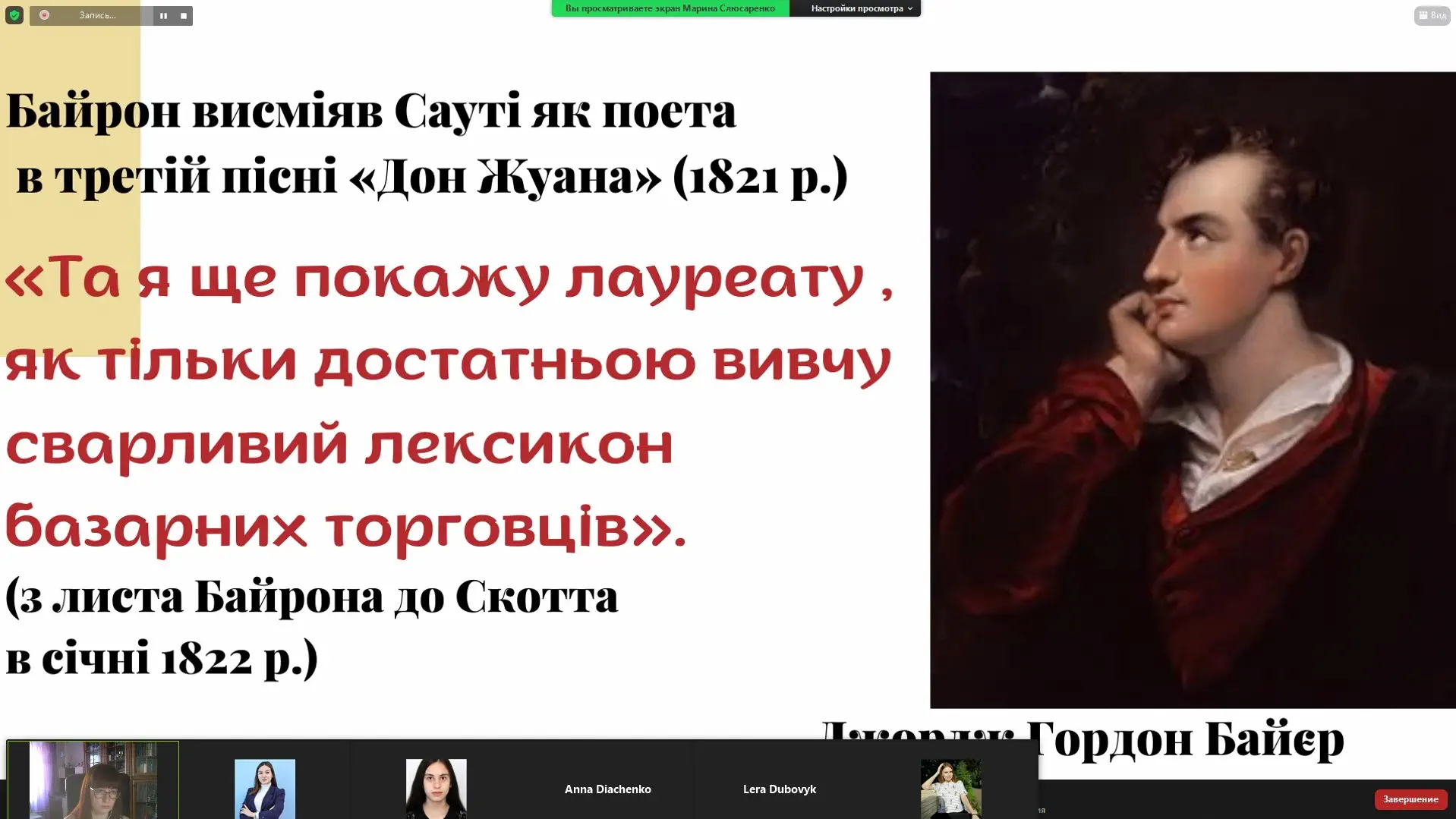

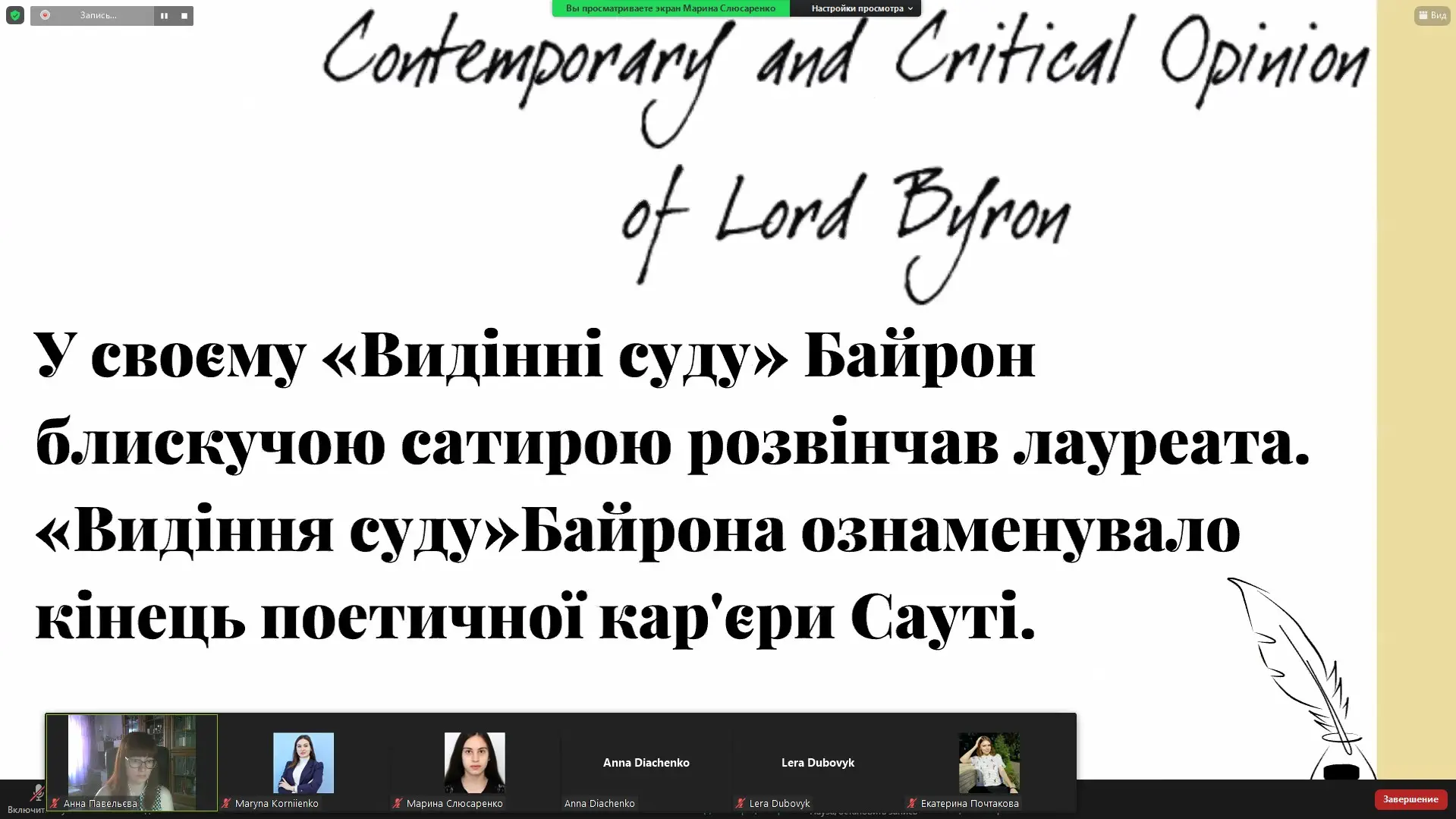
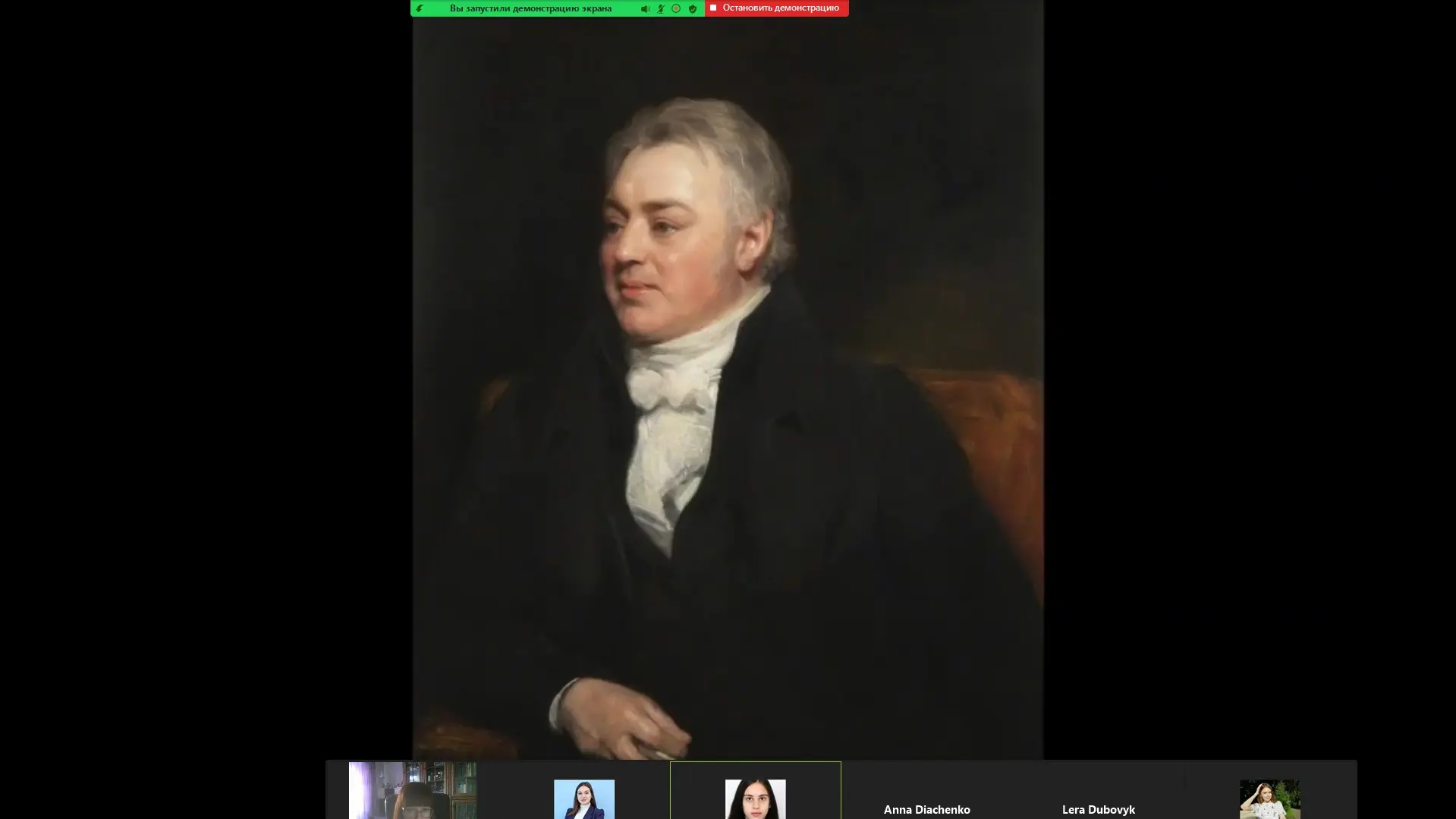

Wordsworth's club "Lake Poets" was named like this jokingly by the Edinburgh Review magazine in 1807, a name firmly entrenched in them despite the protests of the "Lake Poets". The Lake District in the north-west of England is famous for its unique mountain and lake landscapes. It was here, among the hills and groves of Grasmere village, where the Dove Cottage was located – the family nest of William Wordsworth (1770-1850), a famous English lyricist.
A fateful event for the artist was the acquaintance in 1795 with young novice poets Samuel Coleridge (1772-1834) and Robert Southey (1774-1843). The three friends spent a lot of time together, sharing creative plans, and talked for hours with enthusiasm about poetry and philosophy. According to Samuel Coleridge, they were "three people with one soul." The Lake District has become a source of inspiration for poets, as this unique natural beauty – green meadows, mirrored surfaces of lakes, majestic hills and mysterious valleys – inspired artists to dreamy creativity. Wordsworth's works depict some of the picturesque landscapes of those places – the River Derwent, Red Lake on Helvellyn, yellow daffodils on the shores of Lake Ullswater, a winter evening on Lake Esthwaite. William Wordsworth was fond of walking in this picturesque area, admired it, and studied it. Interestingly, in 1810 he even published a guidebook "Guide to the Lakes". Today, the Lake District has remained one of the most beautiful nature reserves in Great Britain.
The work of the poets of the "Lake School" was a kind of protest against the poetry of English classicism, poet-reformers dreamed of restoring British poetry, which was considered artificial, eloquent, oversaturated with stamps, too rationalistic and elitist.
According to the head of the club, Candidate of Philology, Associate Professor of the Department of Germanic Philology and Translation of Poltava Polytechnic Anna Pavelieva, an event helped to choose this topic for the next meeting.
"At the scheduled meeting of our scientific club called "William Wordsworth: Poetry, People and Place", which took place in December 2019, we considered the life and work of the representative of the "Lake School" William Wordsworth. This year, together with students, we decided to study the phenomenon of the "Lake School" in general – how the work of Lake Poets differs from the works of other romantic poets, and conducted a comparative analysis of individual poems translations of representatives of the Lake School. Such an experience will certainly be useful for future scientists, literary critics and promoters of the creative heritage of English poets," – commented the head of the club, Candidate of Philology, Associate Professor of the Department of Germanic Philology and Translation of Poltava Polytechnic Anna Pavelieva.
The collection of poems "Lyrical Ballads", published in 1798, made a real revolution in the life of contemporary English poetry. In 1801, the second edition of the collection appeared with a foreword in which William Wordsworth outlined his poetic concept. The foreword, in which the poet-reformer calls the collection "experimental", became a kind of manifesto of British romantic poets.
"The collection "Lyrical Ballads" is a unique example of the collaboration of two great poetic talents: William Wordsworth and Samuel Coleridge. How they could work together still remains a mystery until now, since the poets were completely different in character and temperament. Wordsworth loved rural peace, fresh air, long walks during which he composed poems, and Coleridge, on the other hand, was a scientist, a binge book lover, and a connoisseur of German philosophy. He had remarkable abilities, but a very complex character. Wordsworth's pen owned 27 poetic works from the collection, and Coleridge –4. The poet-reformer Wordsworth paid great attention to the language of his poetry, which he sought to bring closer to the folk. The poet found themes for his works in everyday life, idealized rural life, making a man of the people the central hero of poetry. He also emphasized the decisive role of nature in the poet's life. Samuel Coleridge, on the other hand, tended to be fantastic, mysterious and mystical," – says Maryna Kornienko, a regular member of the club and a third-year student majoring in Philology.
Earlier, members of the scientific club studied Mikhail Bulgakov’s satirical novella “Heart of a Dog” and its foreign translations, discussed the creative heritage of the mystic writer, exchanged life hacks for the translation of advertising slogans of global brands, analyzed the creative heritage of the famous Polish science fiction writer as well as studied little-known pages of the work of the famous French classicist.
It should be recalled that meetings of the students’ scientific club "Philology" are held at the Faculty of Humanities of Poltava Polytechnic at least once a month. Connoisseurs of the colorful literary word and all those interested ones are invited to participate.
For more information on the time and place of the scientific club meeting, please contact the Department of Germanic Philology and Translation (room 310-C) or directly to the head of the club – Anna Kostiantynivna Pavelieva, at number 095-91-08-192.
Media Center of
National University “Yuri Kondratyuk Poltava Polytechnic”
